Jennie Maakal
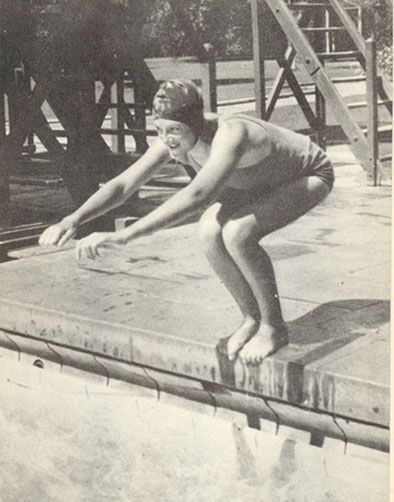
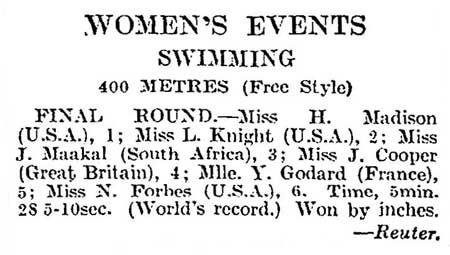
Jennie Maakal was a swimmers from Pretoria who finished third in the women's 400m freestyle at the 1932 Olympic Games in Los Angeles - winning South Africa's first Olympic swimming medal. The race was won by American swimming legend Helen Madison with Lenore Kight taking the silver.
Her coach was Jimmy Green of Pretoria. Jenny had the following podium finishes at major championships: 3rd in the 1932 Olympics 400 metres Freestyle; 2nd in the 1934 British Empire Games 4×110 yards Freestyle Relay (with Kathleen Russell and the non-Olympians Enid Hayward and Molly Ryde). In the 1930 British Empire Games she finished fifth in the 400 yards freestyle.
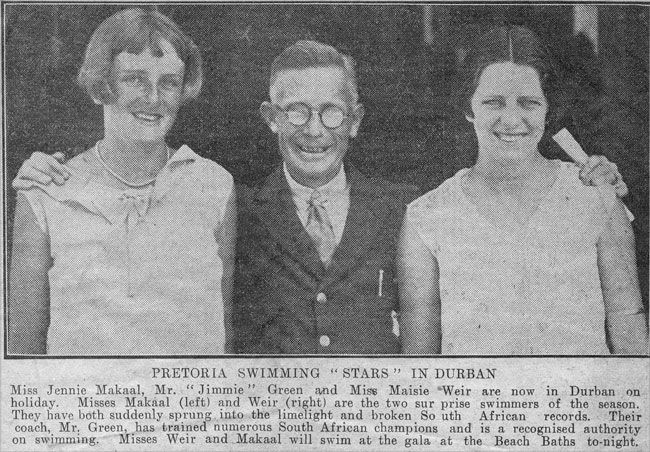
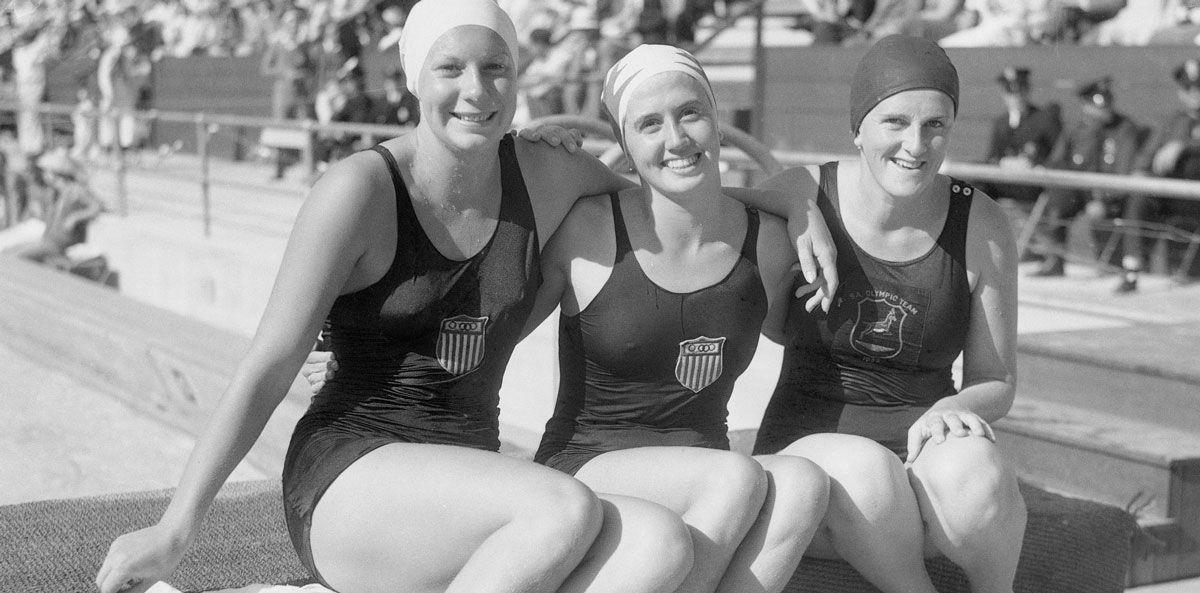
To the victor the spoils, but to Jennie Maakal much of the glory. For in many respects her performances against the greatest woman star the swimming world had then produced, Miss Helen Madison, were among the best of the Team, and perhaps the best of any South African swimmer on record at that time. At any rate she caused South Africa's name to be placed in the first three for the first time in an Olympic swimming event.
As in the case of Joubert, she won a great deal of personal acclaim, and kudos for South Africa, measuring up to the best world's standard, which was particularly gratifying in view of the cloud which shrouded the selection of both of them. Neither was chosen without acrimony, and the controversies which surrounded their respective selections ended in both of them getting into the Team by private subscription. The prestige they gained for South Africa could only have been exceeded by their actually winning Olympic titles.
<>Miss Maakal did all that her most sanguine admirers in South Africa pleaded that she would do, and a great deal more, actually accomplishing the achievement of bettering an Olympic record without winning an event.
One person alone was responsible for the inclusion of Jennie Maakal in the Team, and that was Jimmy Green, who was then Superintendent of the Pretoria Municipal Swimming Baths, and a famous swimming coach. Jimmy Green was primarily responsible for having the finance necessary for Jenny's fare to Los Angeles being raised and he himself must have been well out of pocket by his magnificent gesture. But this South African coach (who, incidentally, is still coaching swimming in Johannesburg) , in advocating the claims of Jenny Maakal, maintained she was capable of certain times and stressed that she had a chance, but his claim was ridiculed in many quarters.
However, Jennie Maakal proved Jimmy Green more than correct, because not only did she improve on her South African times, but on two occasions she beat the world's record, and she was the first South African swimmer to have the South African flag raised in its honour at an Olympiad. It was a personal triumph for her, a personal triumph for Jimmy Green, her coach, and an invitation to those who opposed her selection to "eat their words".
It’s probably South Africa’s best-kept sporting secret, but our boxers have brought home the most Olympic medals; 18 in all, of which six were gold. In Antwerp in 1920, Clarence Walker won the country’s first gold medal in the bantamweight division. Four years later in Paris, Willie Smith took gold in the same division.
Lightweight Laurie Stevens and light heavyweight Dave Carstens took gold in 1932, and it was on the way back from Los Angeles to Cape Town that they demonstrated the ultimate Olympic spirit towards team-mate, bronze medallist Jenny Maakal.
Lappe: “Her team mates could see she was not happy and they said, ‘What’s wrong with you, I mean you did wonderfully well, what’s wrong?’ and she said, ‘Look, I don’t think it was really worth it. My mother had to take a bond and we’re going to lose our house.’ And the two boxers, Dave Carstens and Laurie Stevens, they had both at that stage contracts, - professional contracts - and they could start boxing for money. But they said, ‘We’re not going to do that. We’re going to have tournaments and all of that money will be for you to give to your mother until she’s paid her bond back.’”
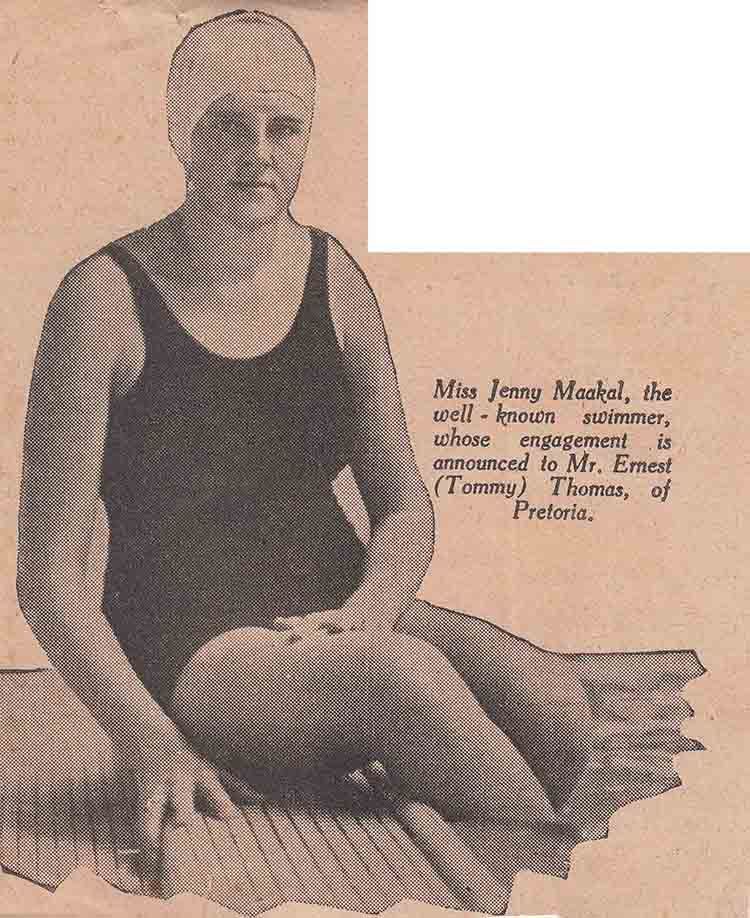
IMG 0003
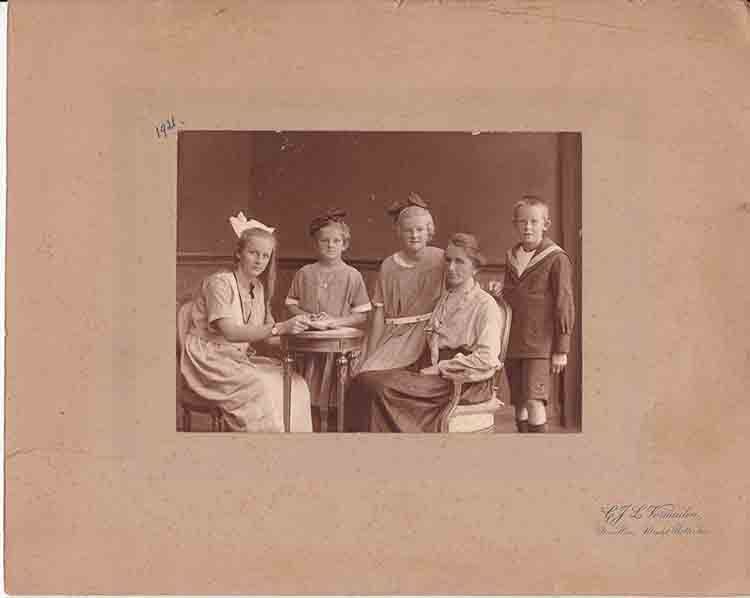
Family Photo 1
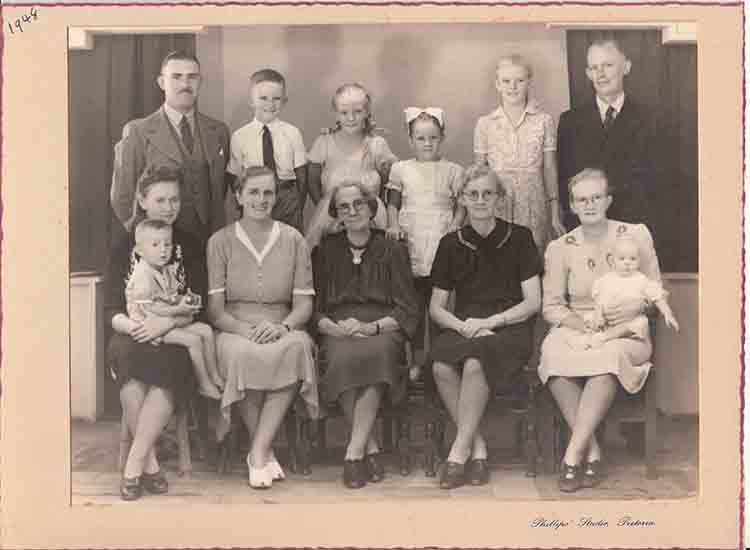
Family Photo 0001
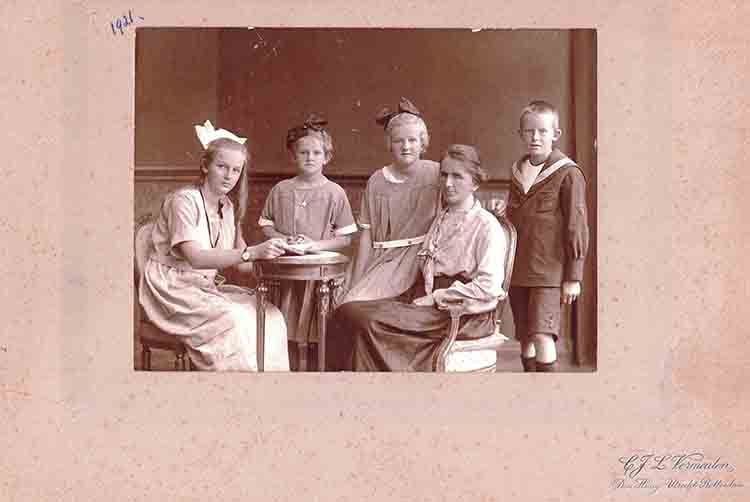
Family Photo
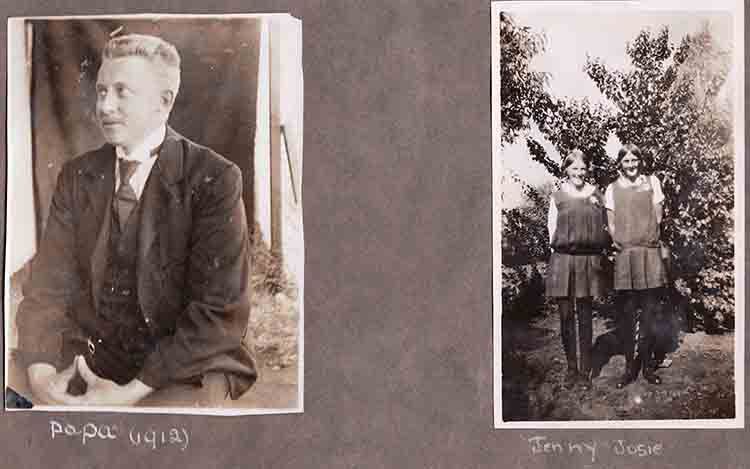
G Grand Father Markaal
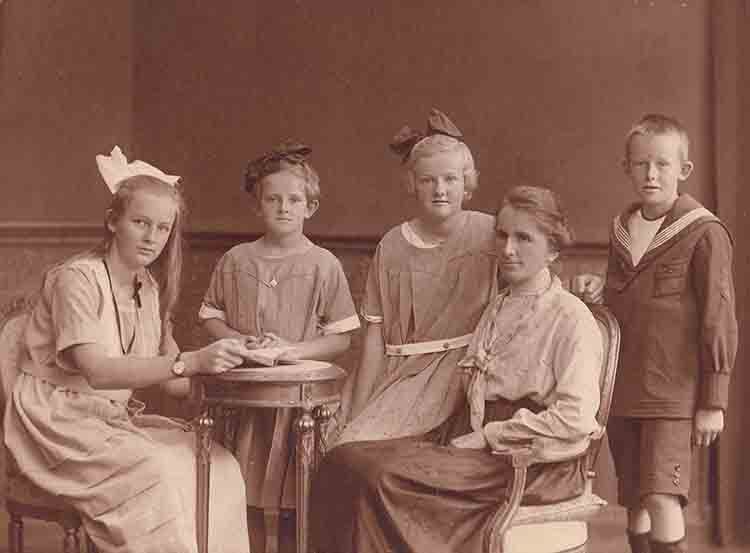
Grans Family Photo 1921
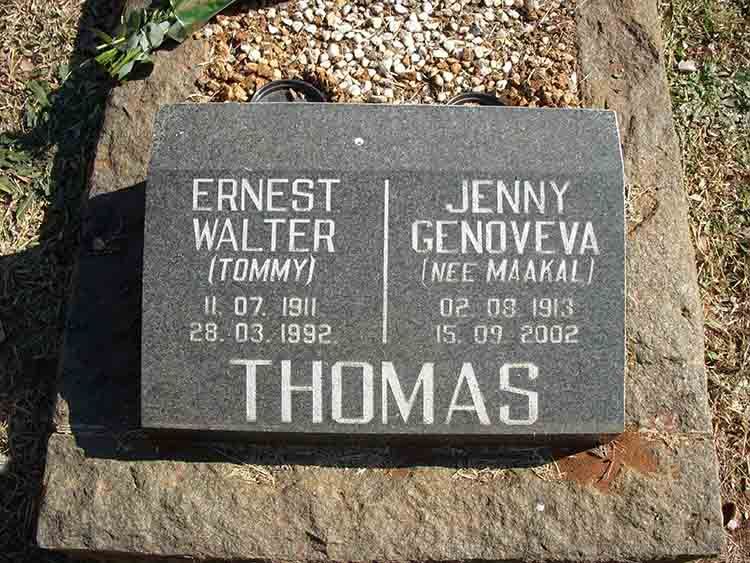
Headstone
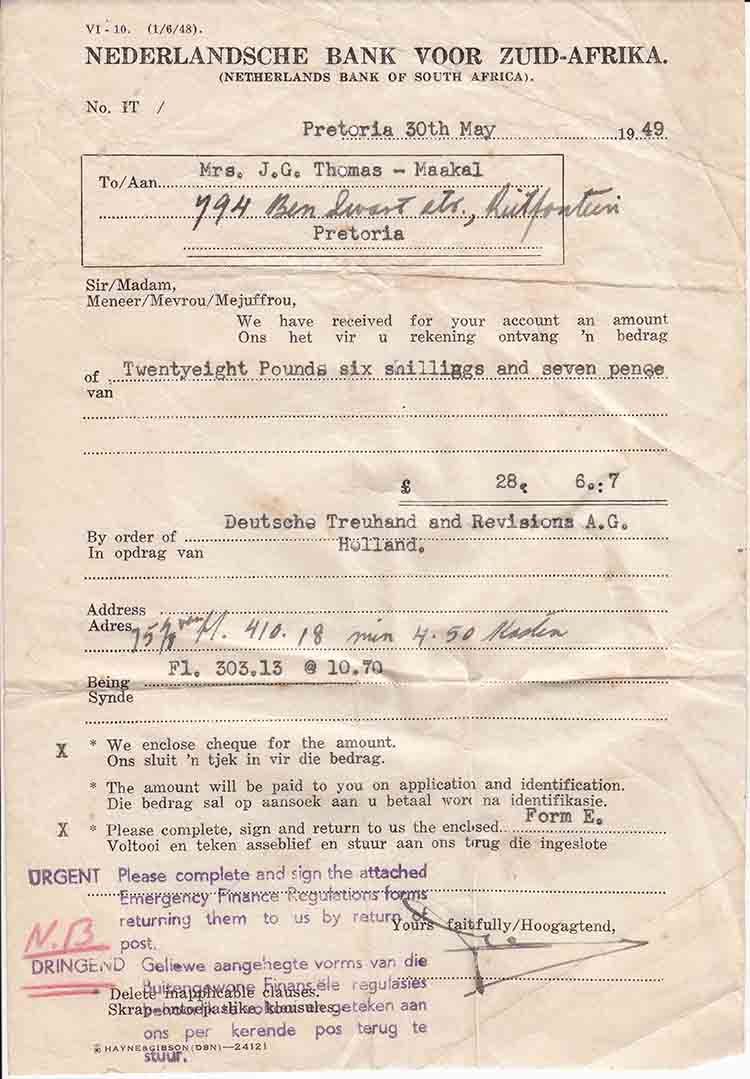
IMG 0001
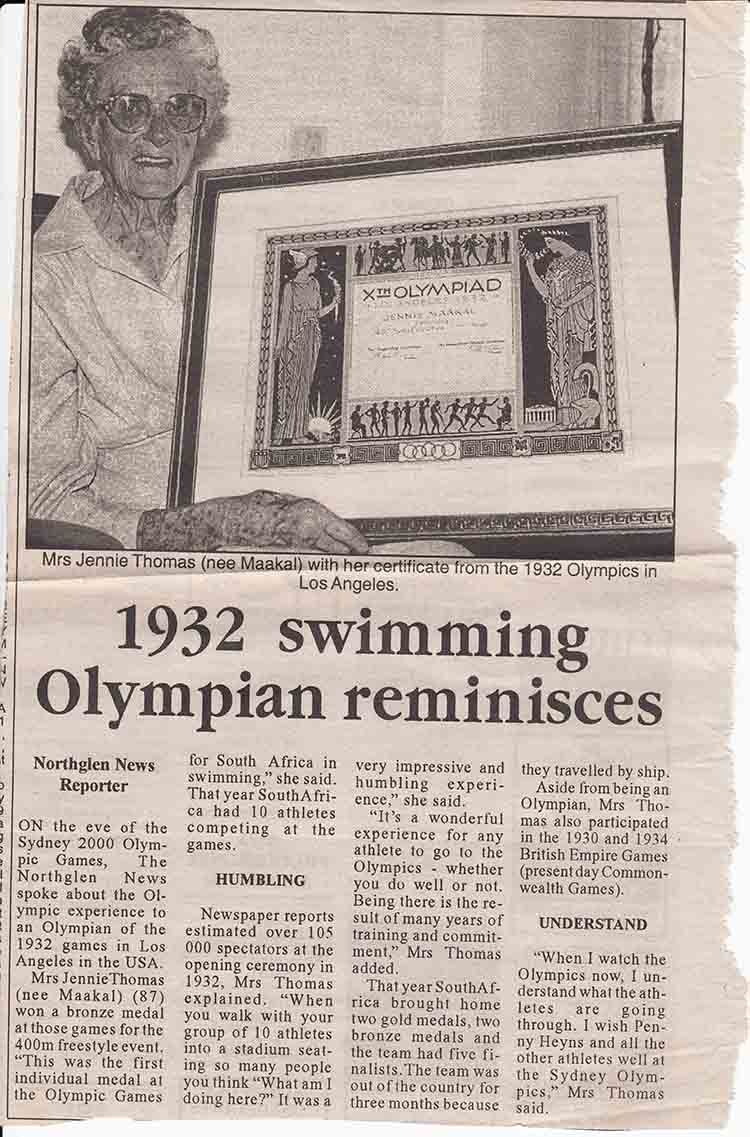
IMG 0002
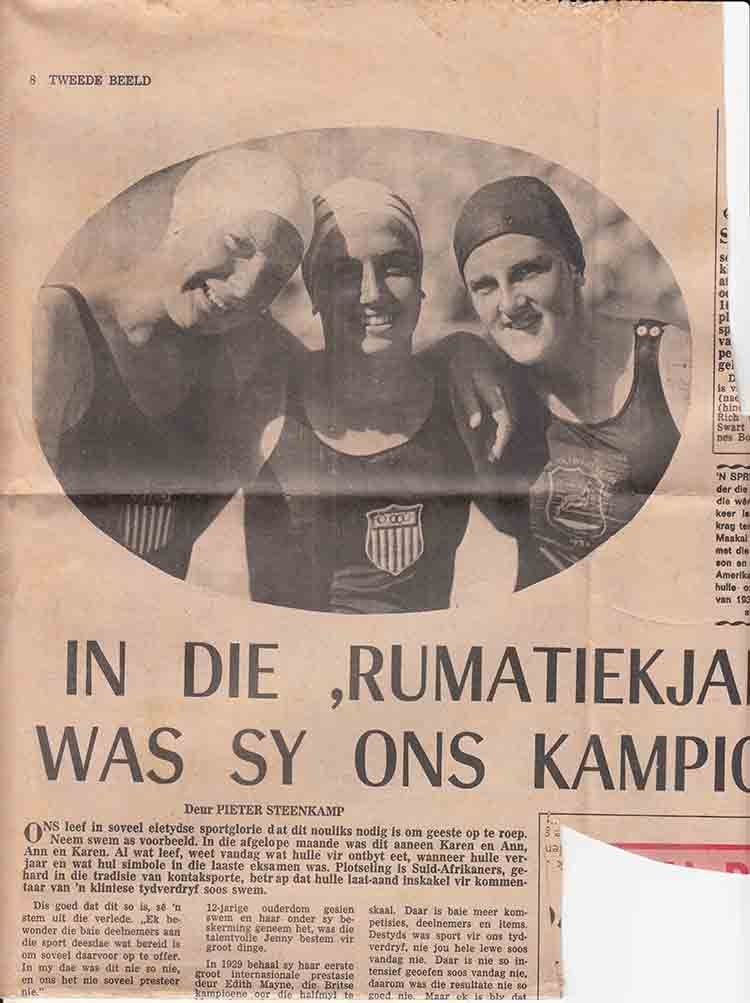
IMG 0004
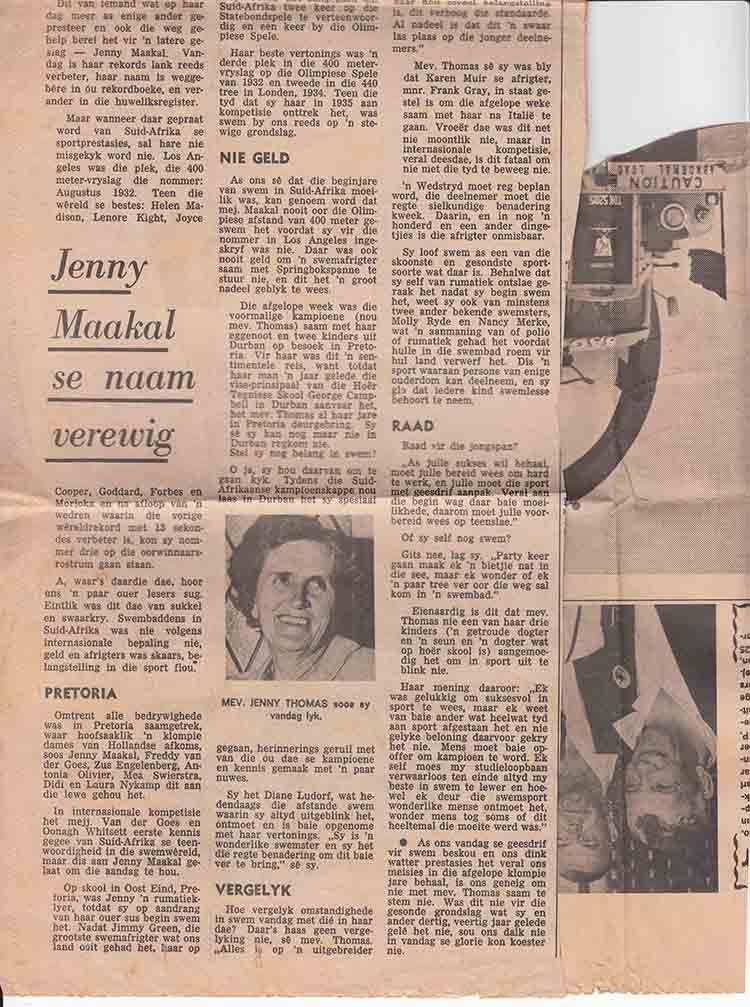
IMG 0005
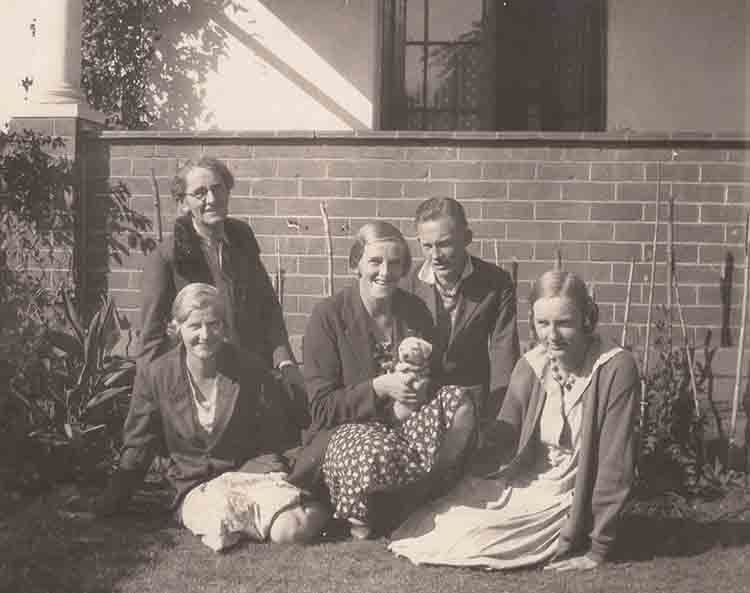
IMG 0006

IMG 0007
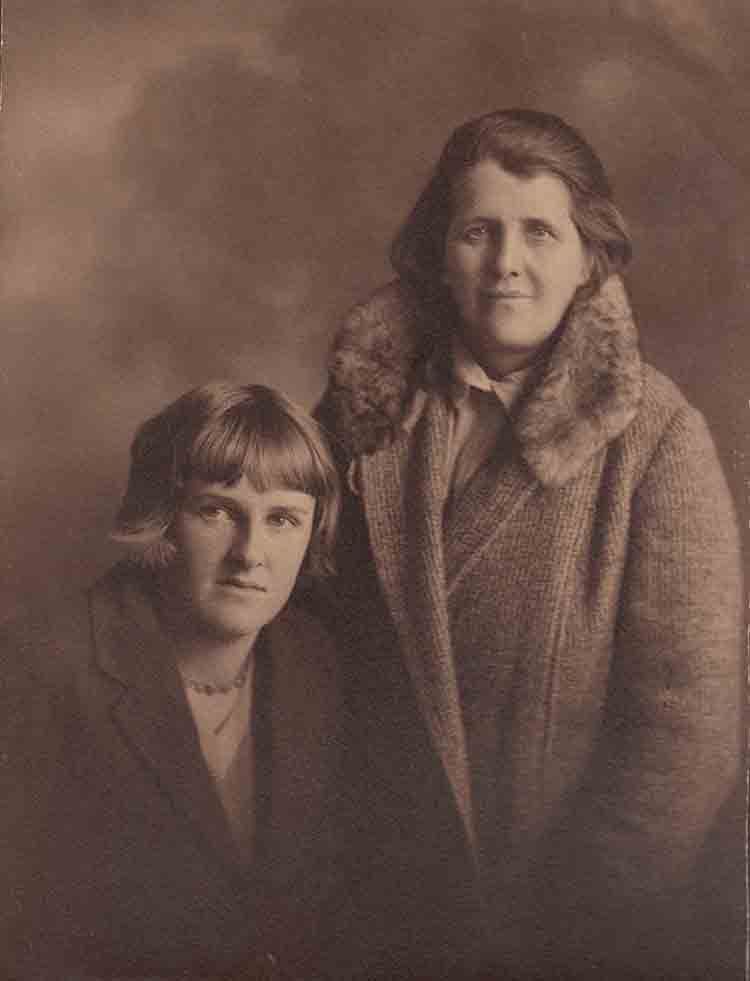
IMG 0008
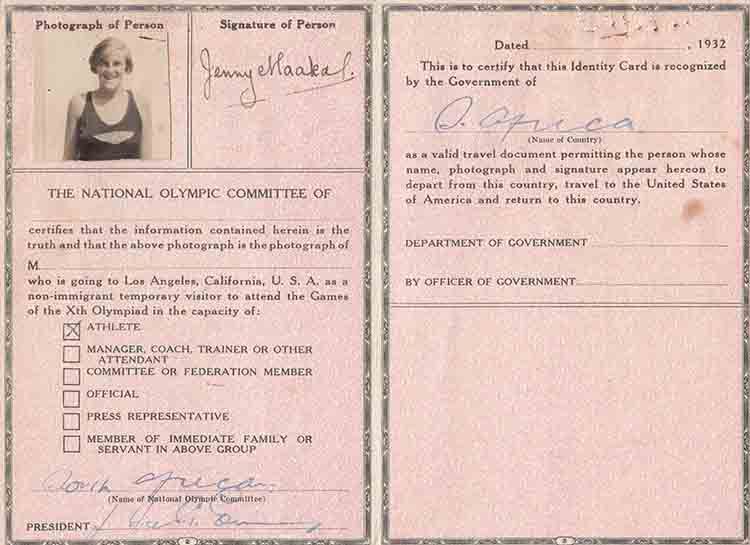
IMG 0009
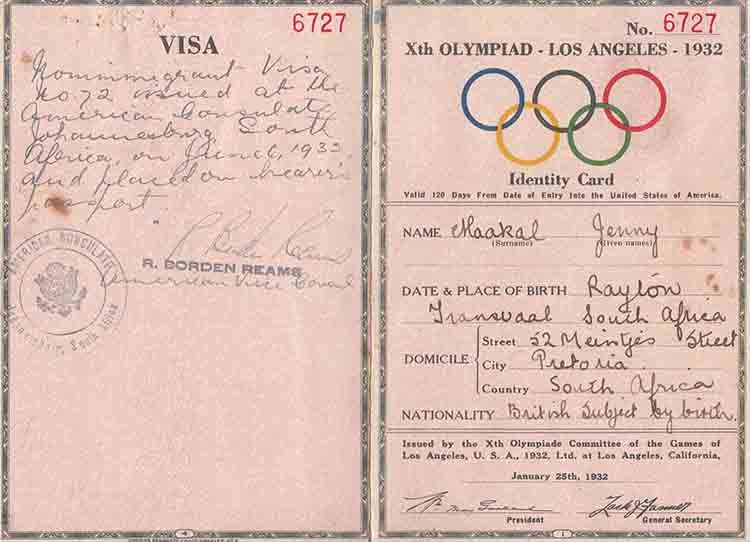
IMG 0010
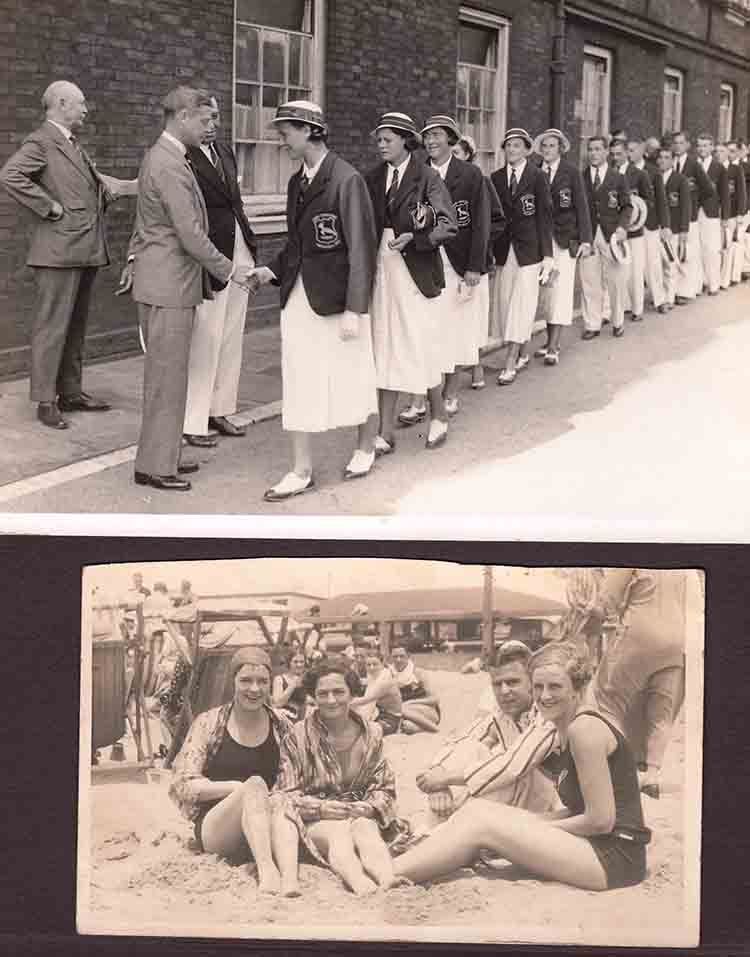
IMG 0011
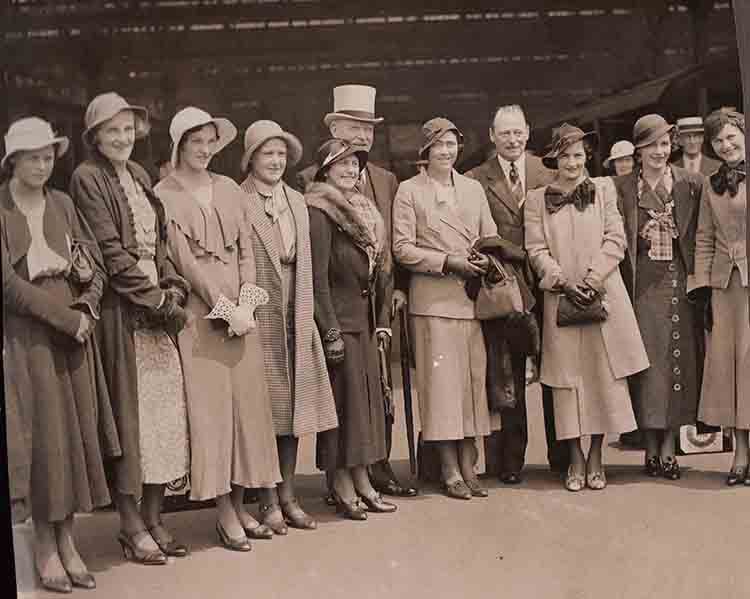
IMG 0012
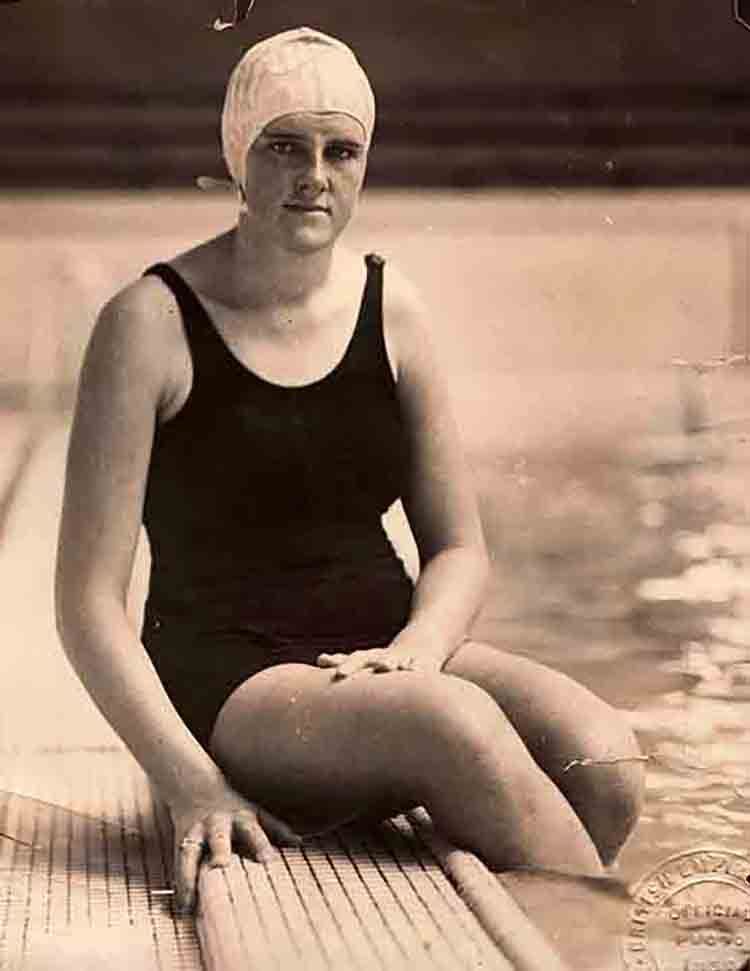
IMG 0013 A
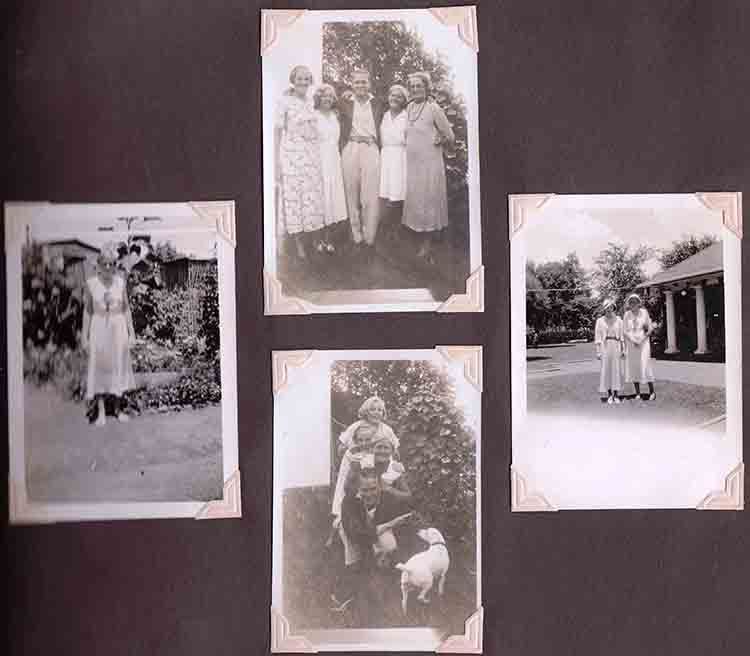
IMG 0014
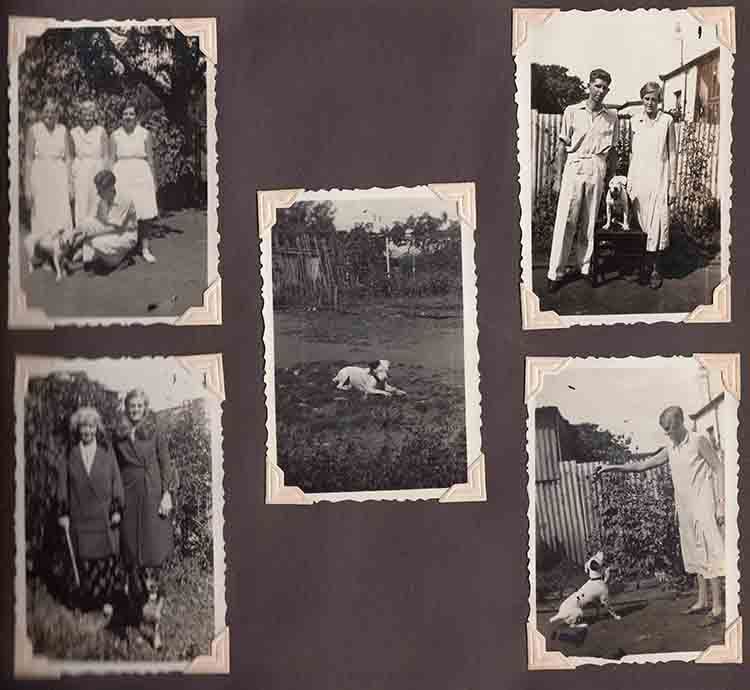
IMG 0015
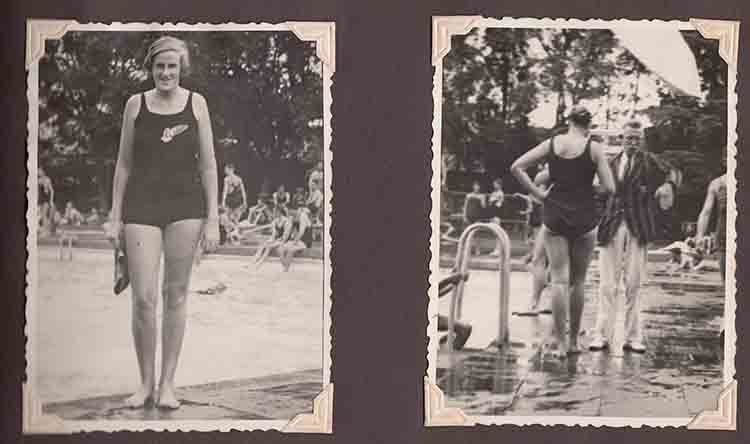
IMG 0016
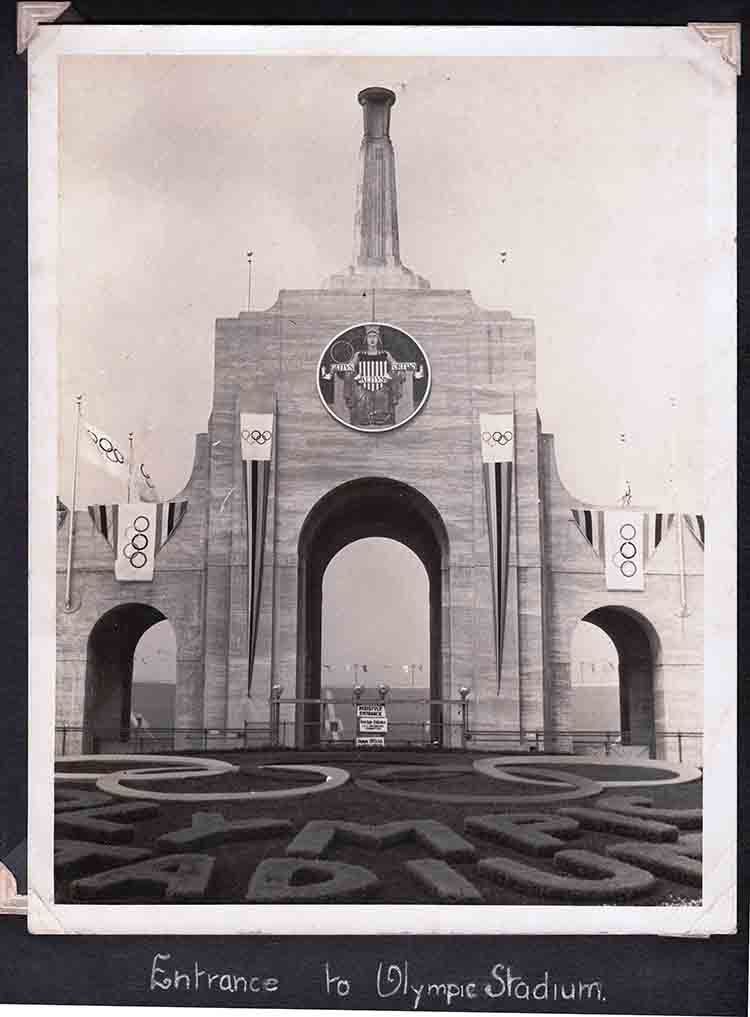
IMG 0017
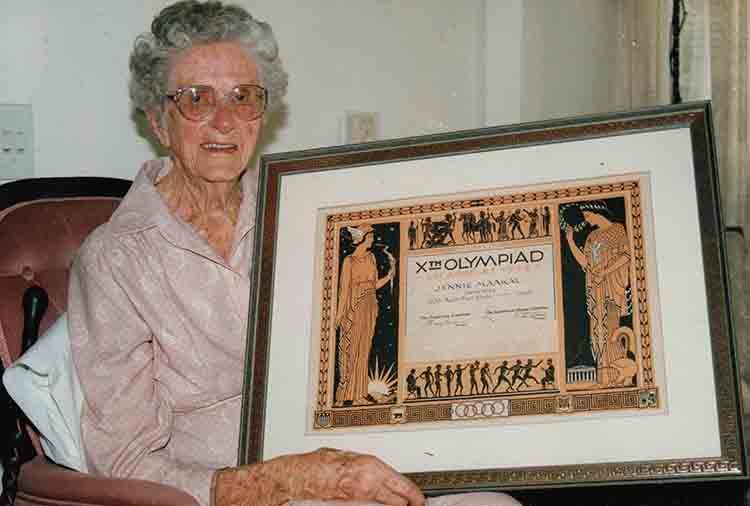
IMG 0018
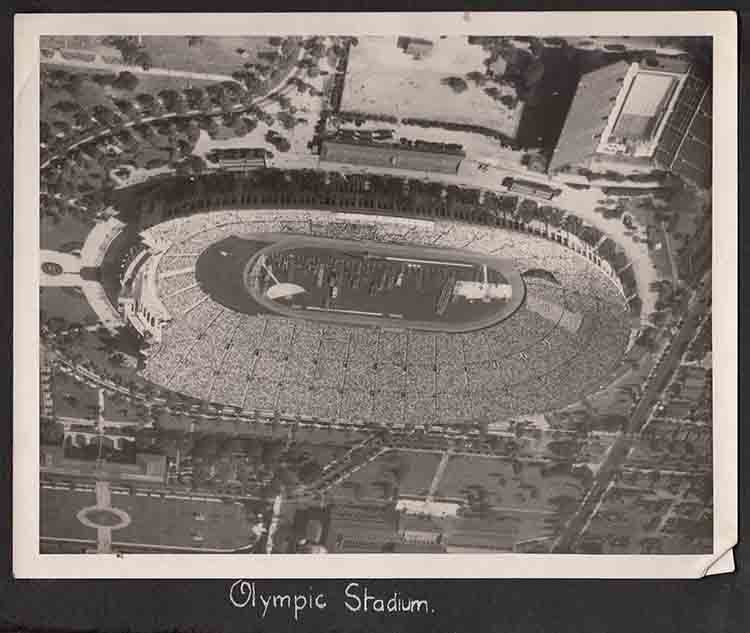
IMG 0020
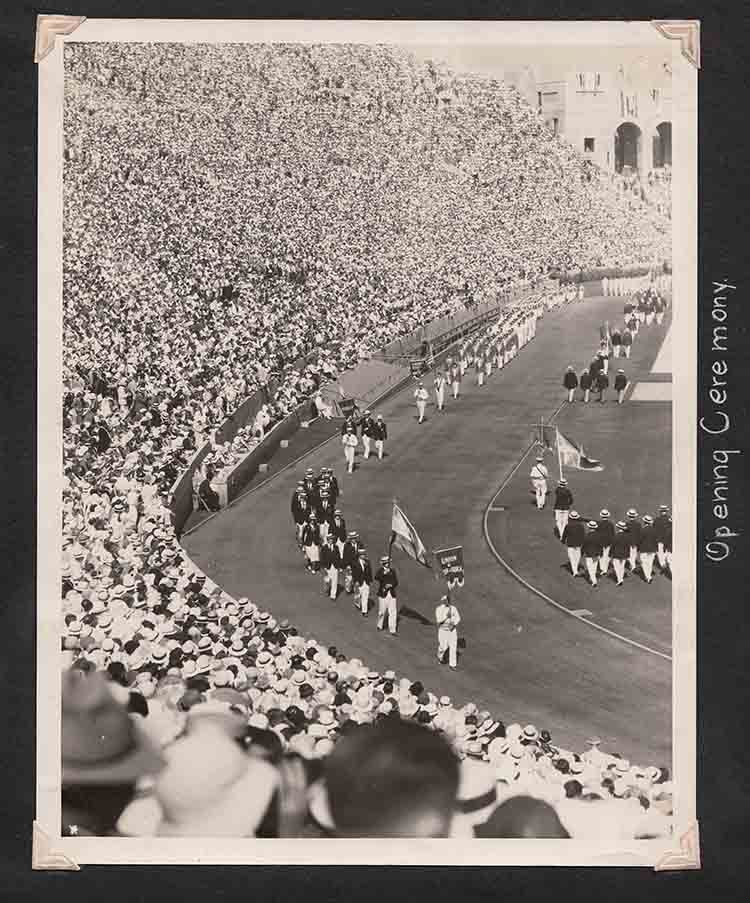
IMG 0021
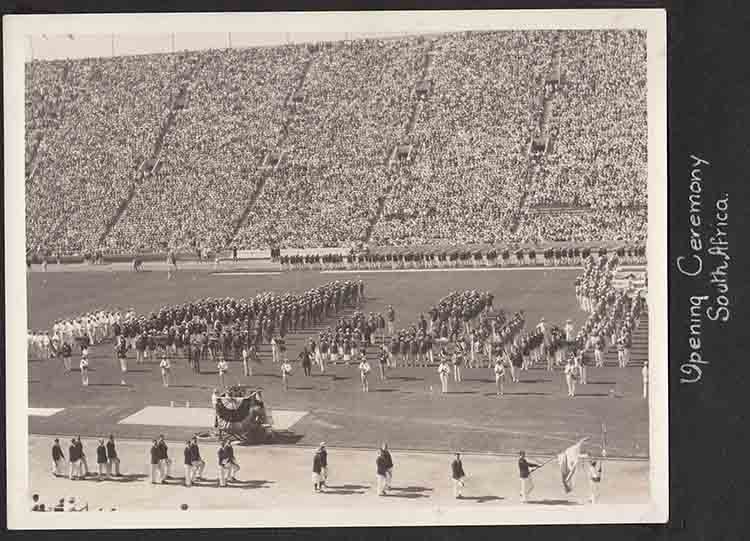
IMG 0022
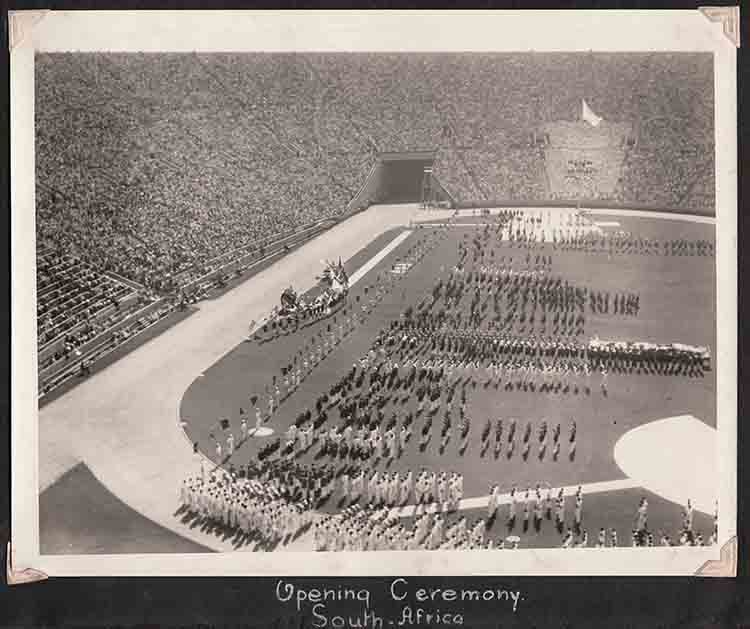
IMG 0023
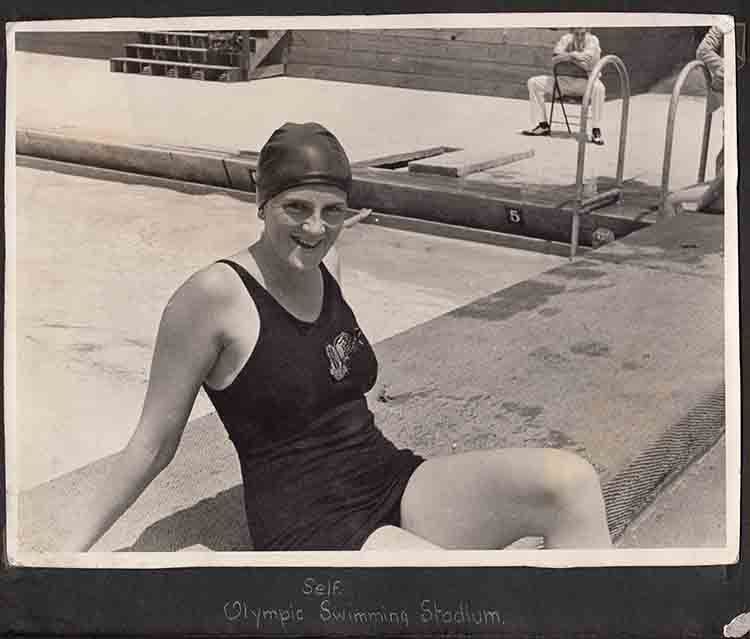
IMG 0024
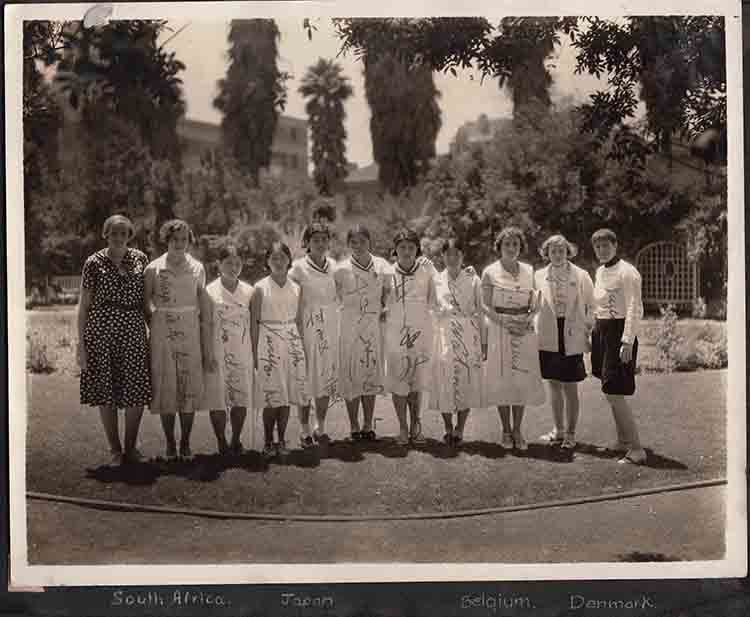
IMG 0025
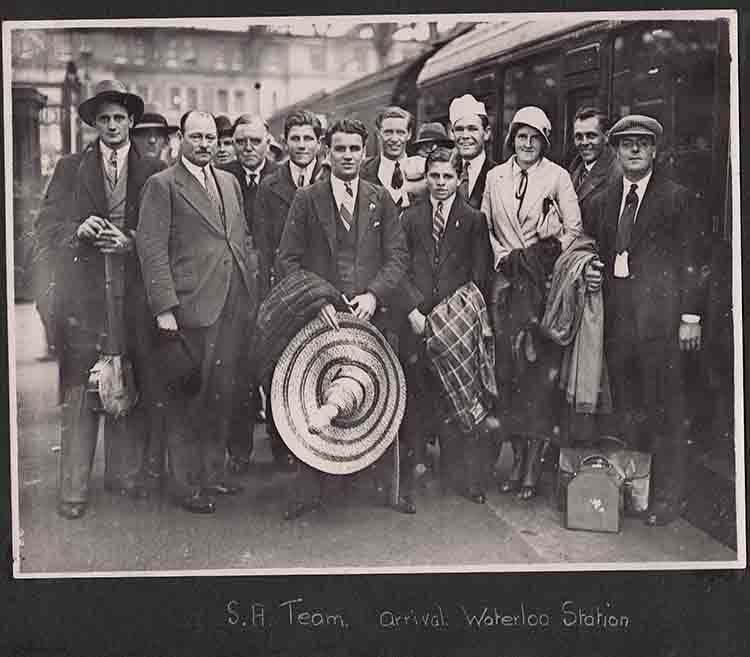
IMG 0026
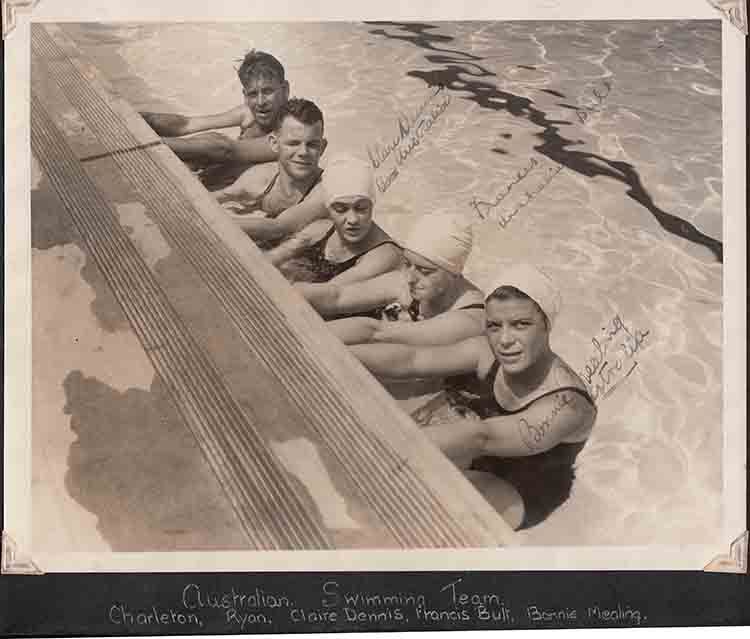
IMG 0027
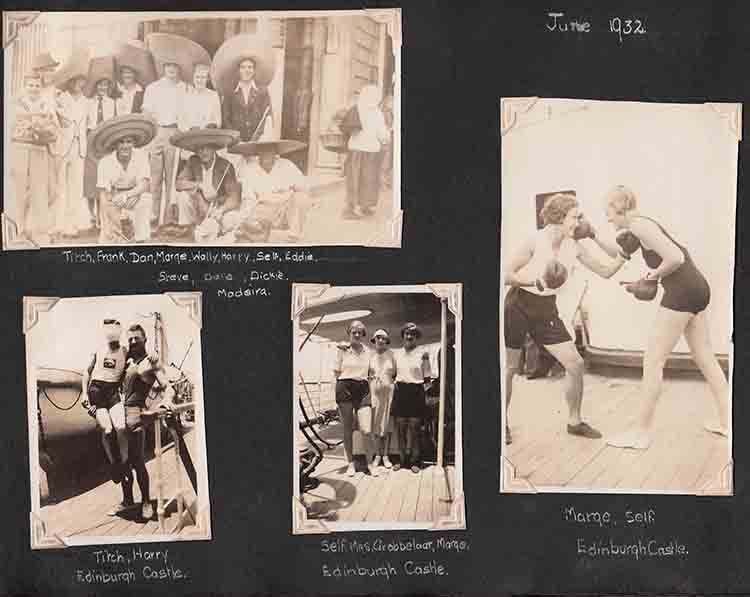
IMG 0029
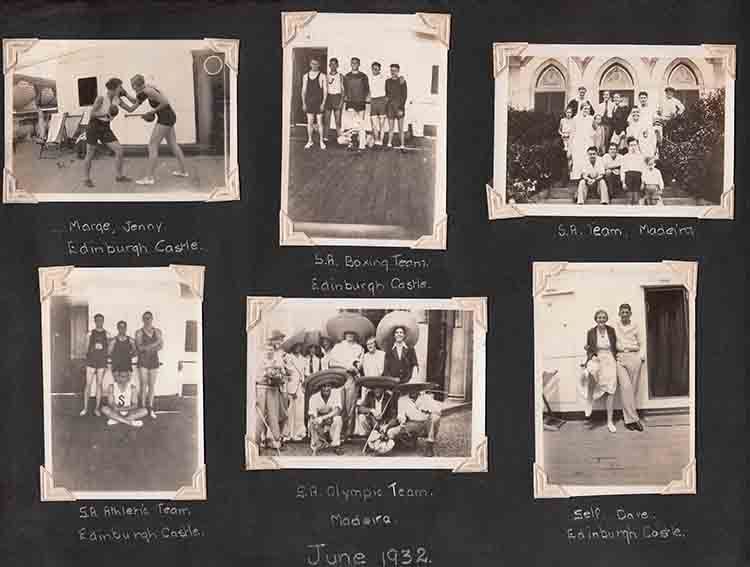
IMG 0030
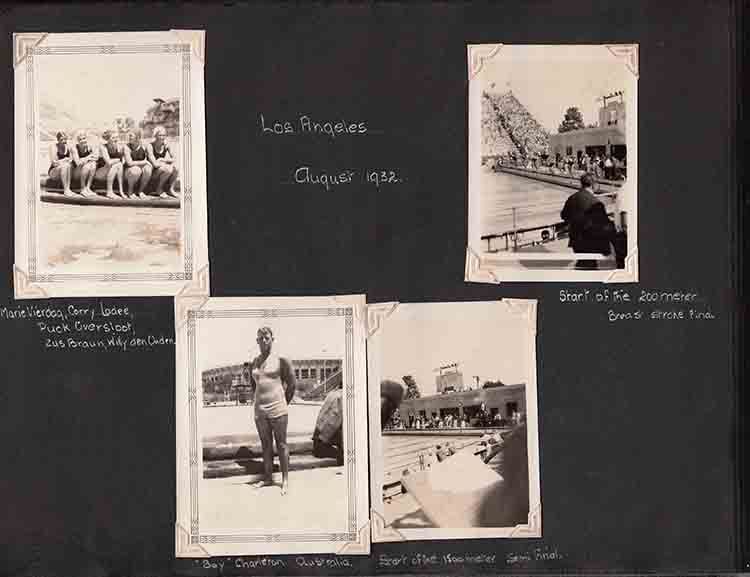
IMG 0031
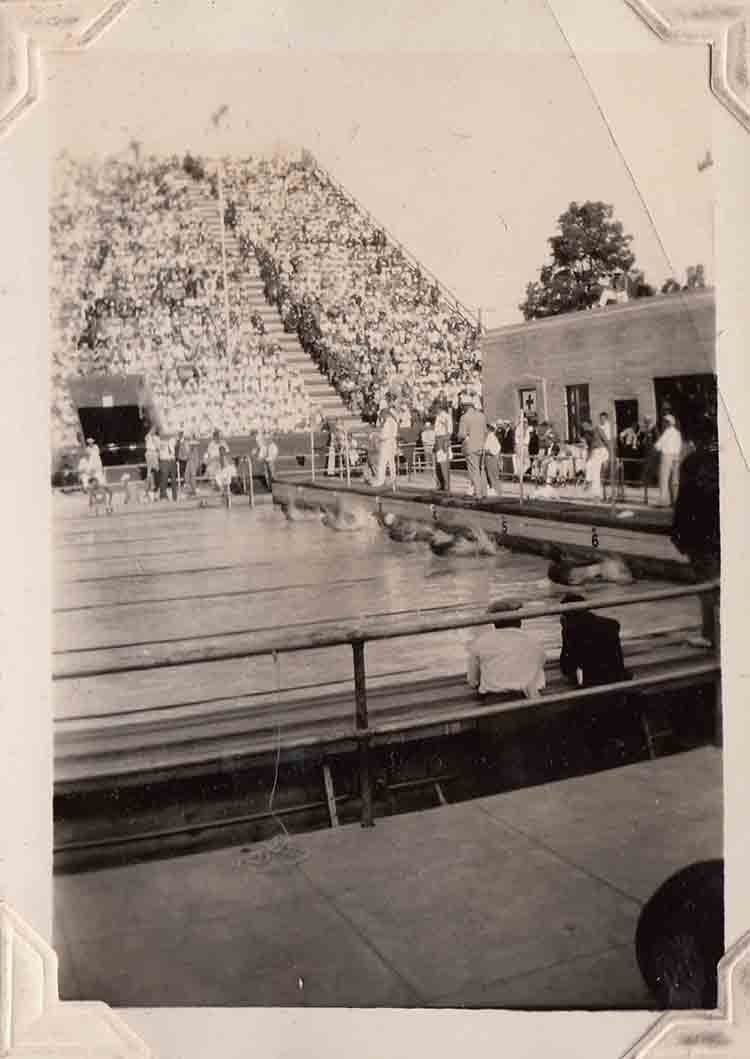
IMG 0032
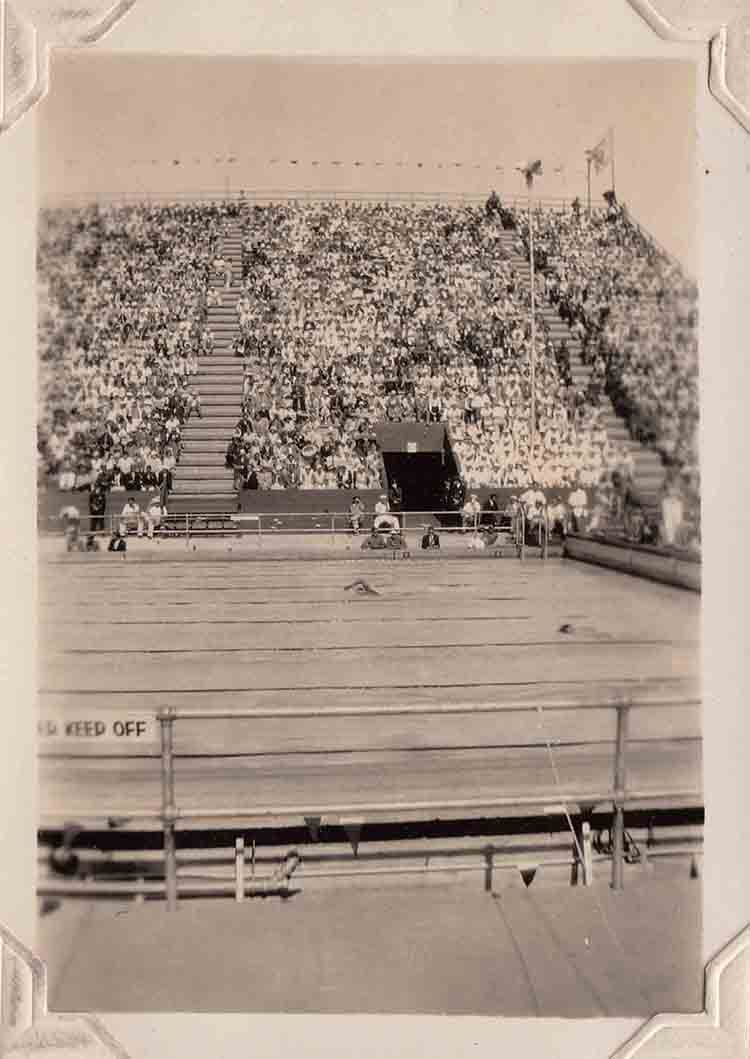
IMG 0033
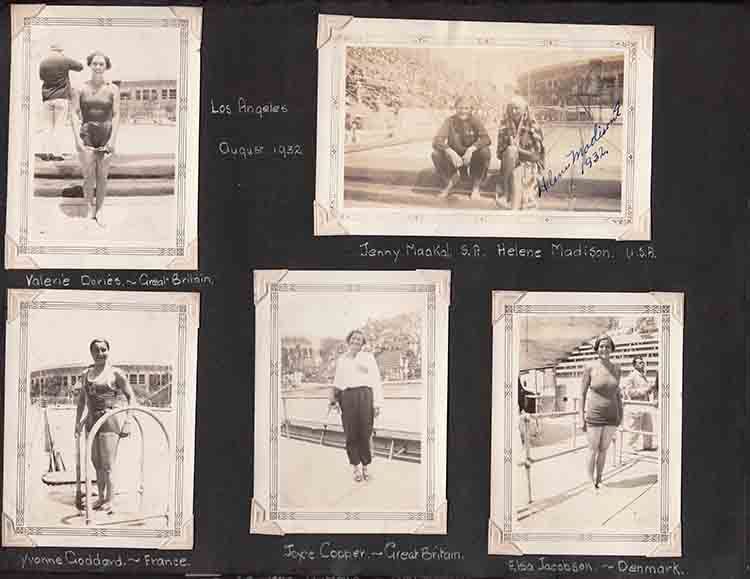
IMG 0034
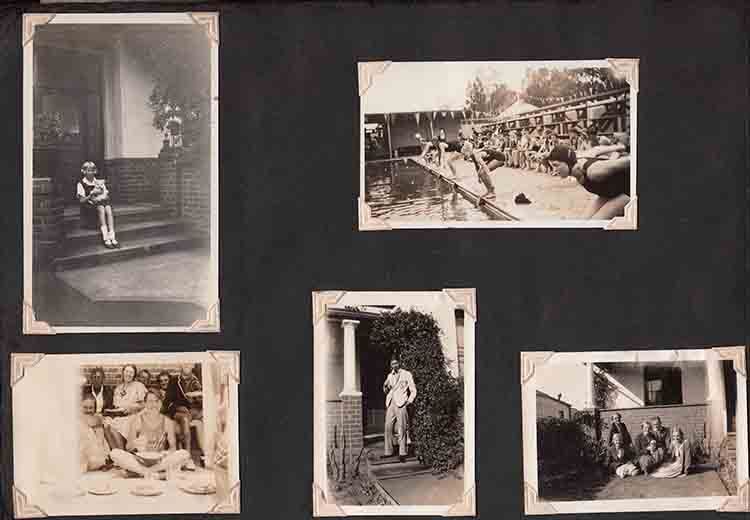
IMG 0035
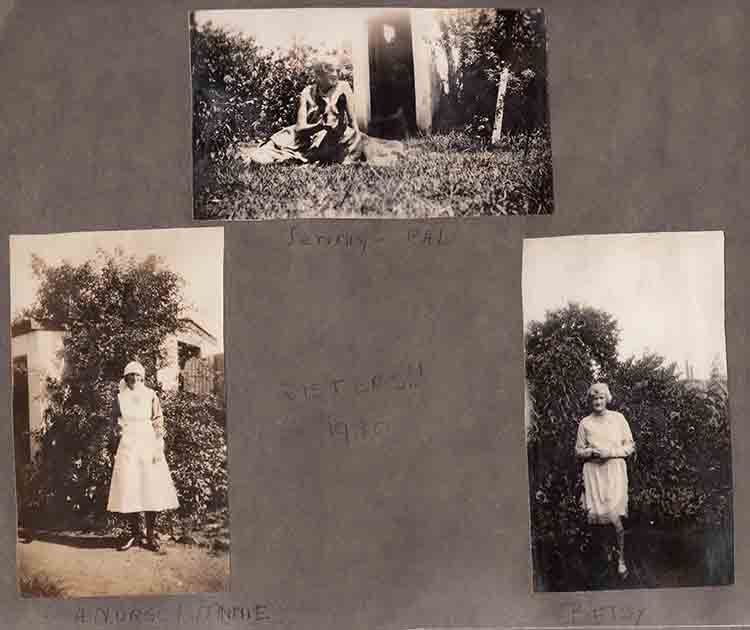
IMG 0040
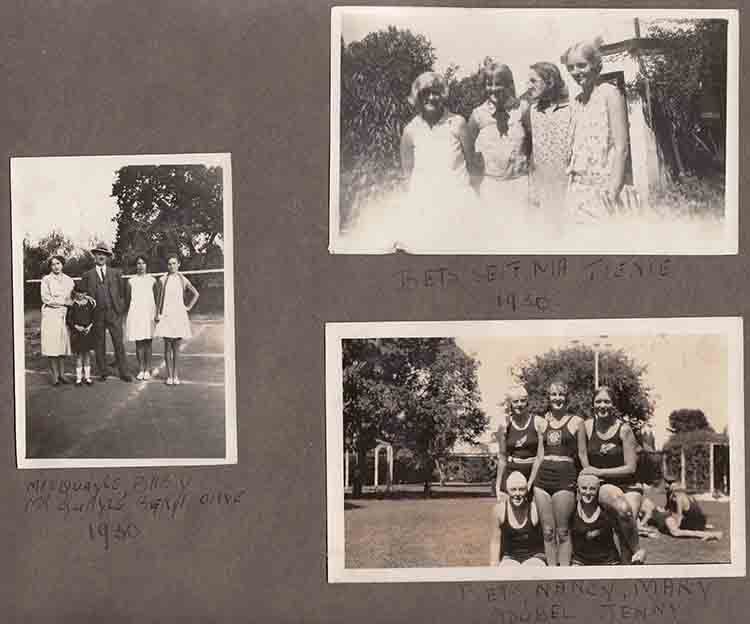
IMG 0041
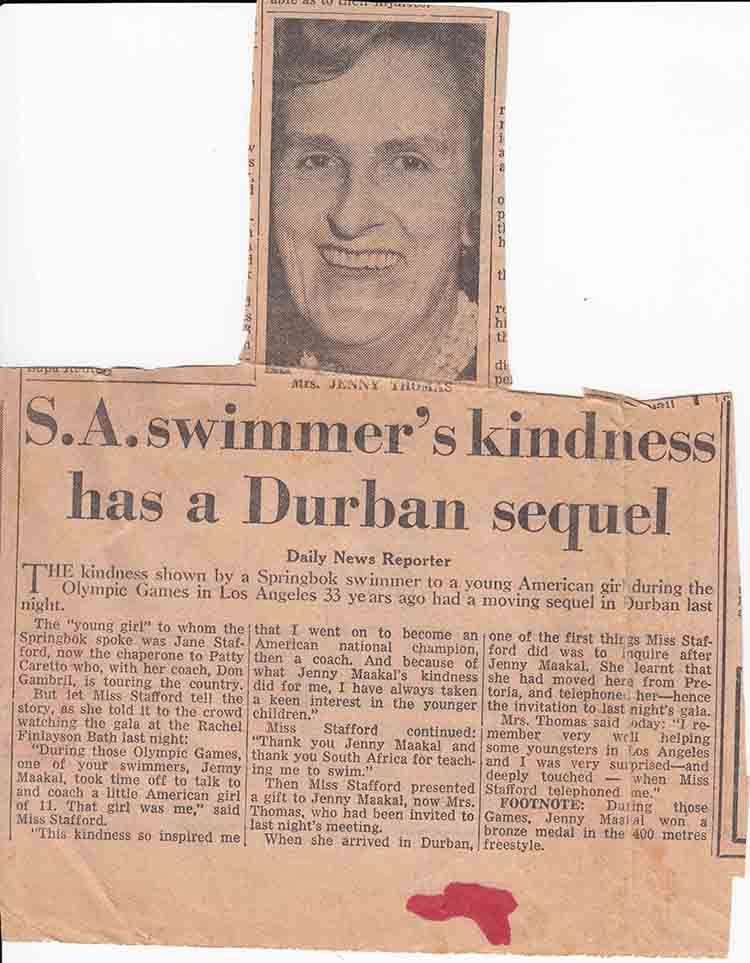
IMG
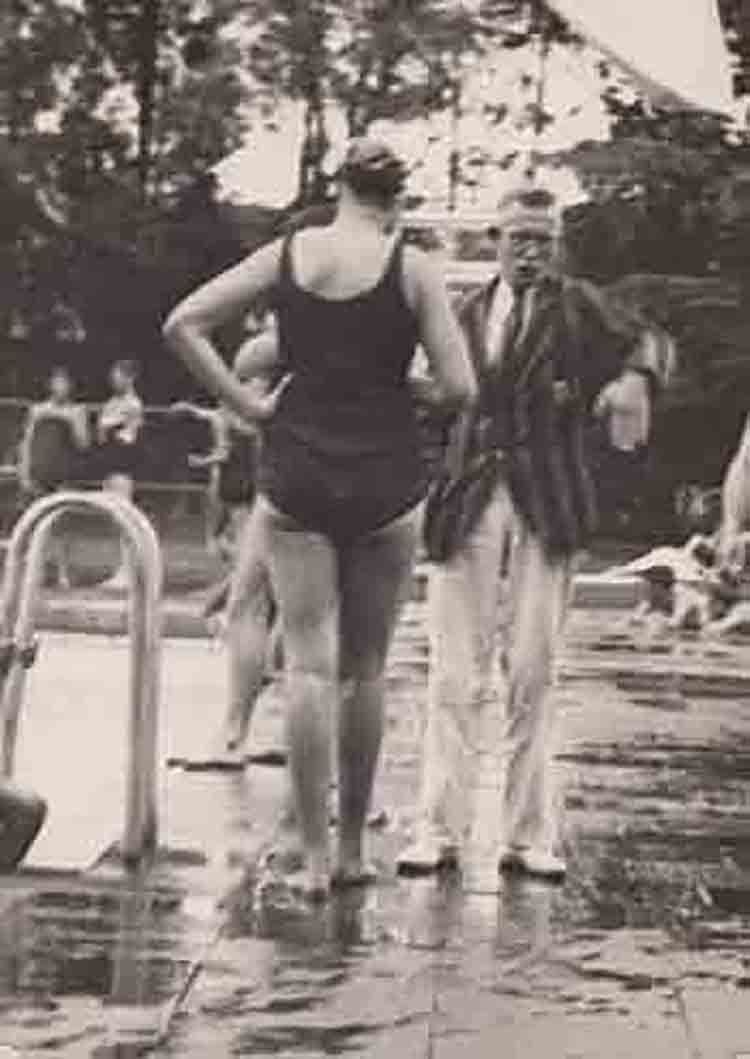
Jennie En Jimmy Green
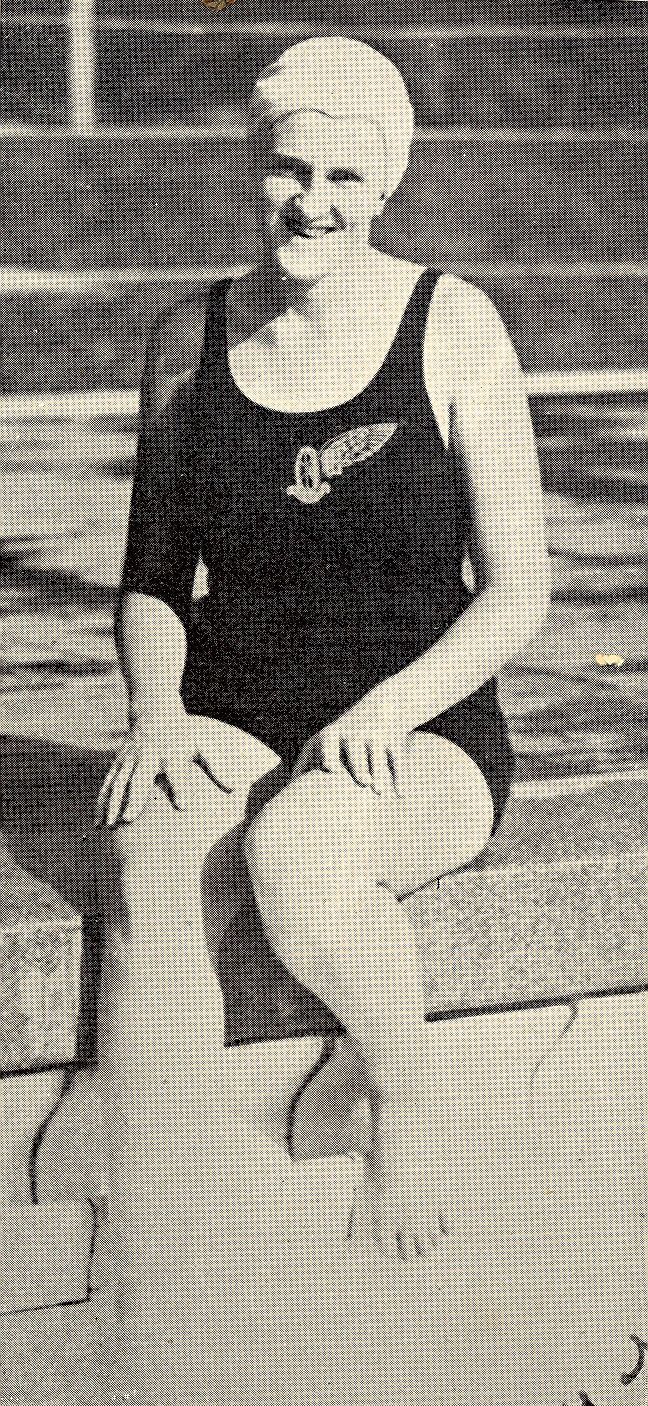
Jennie Maakal 2
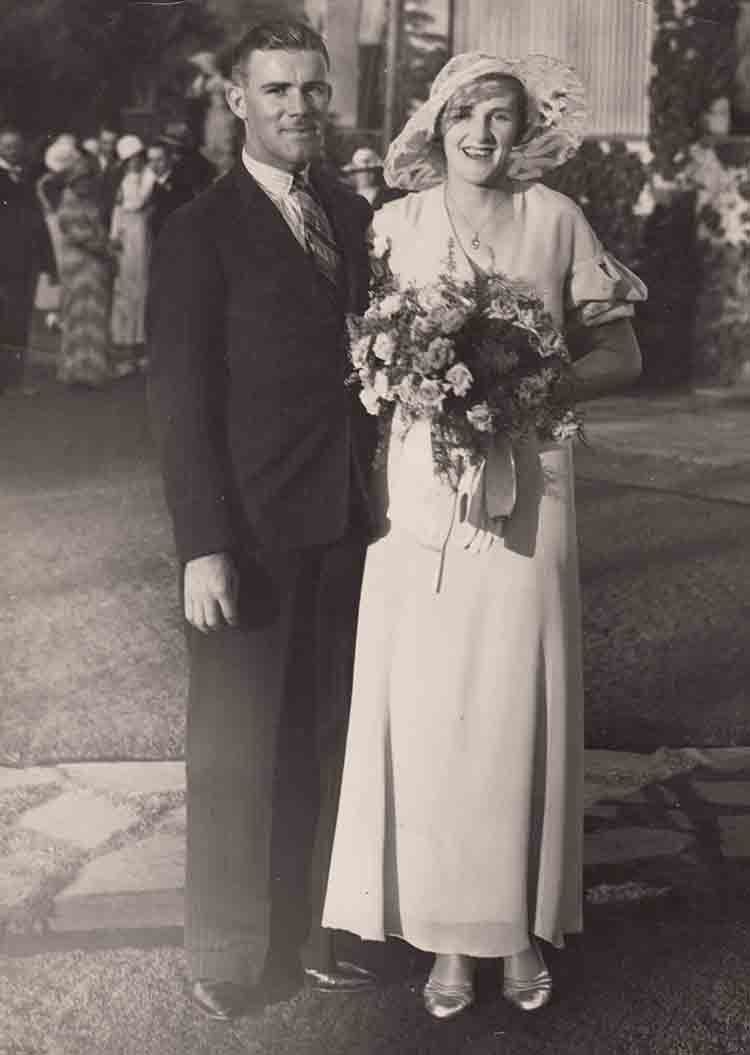
Photos
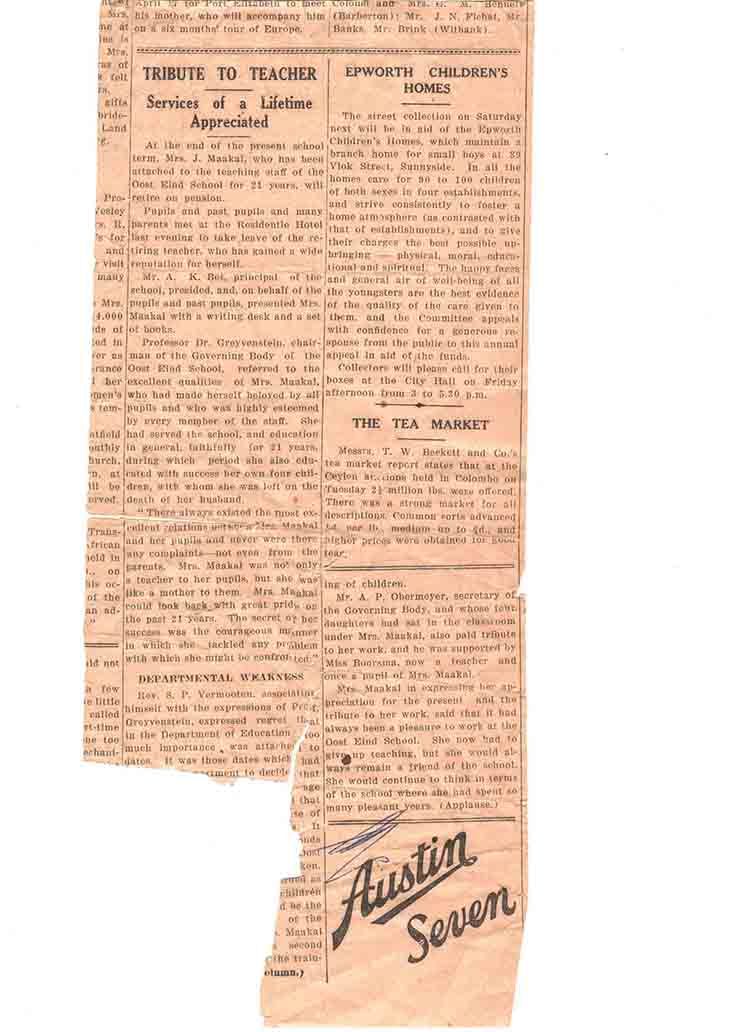
Jenny 017
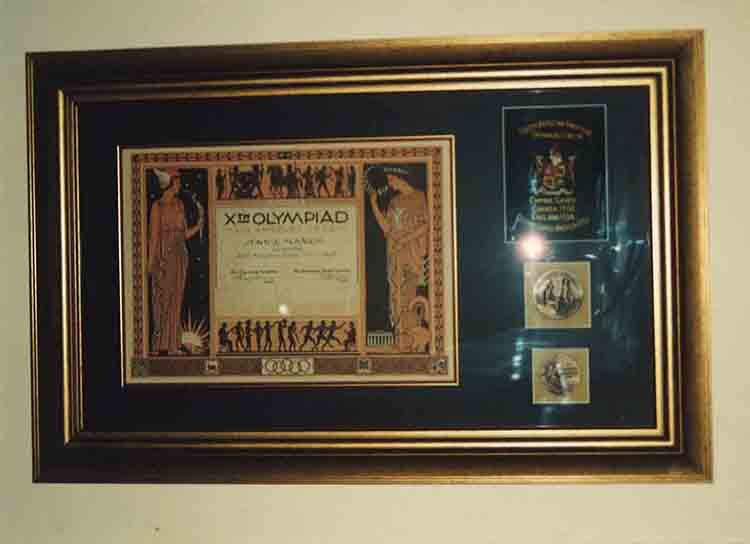
Jenny Maakal Olympic Medal
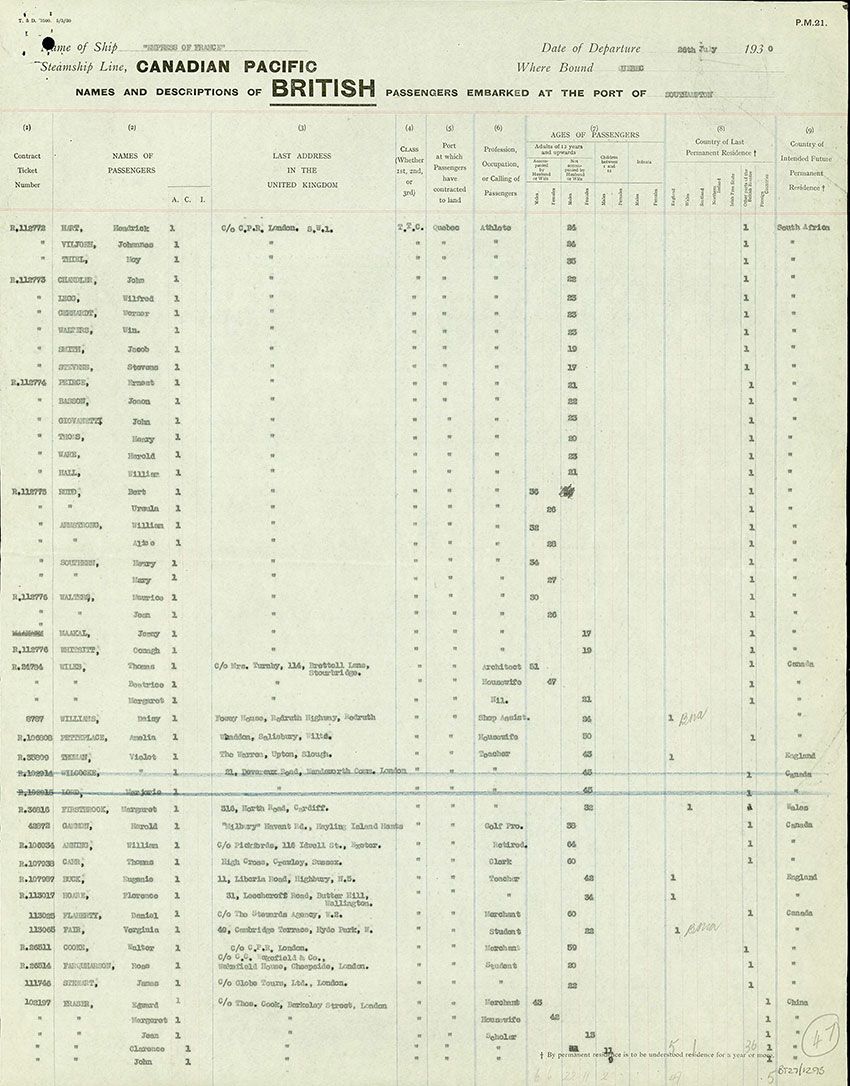
1930 Ship Log 1
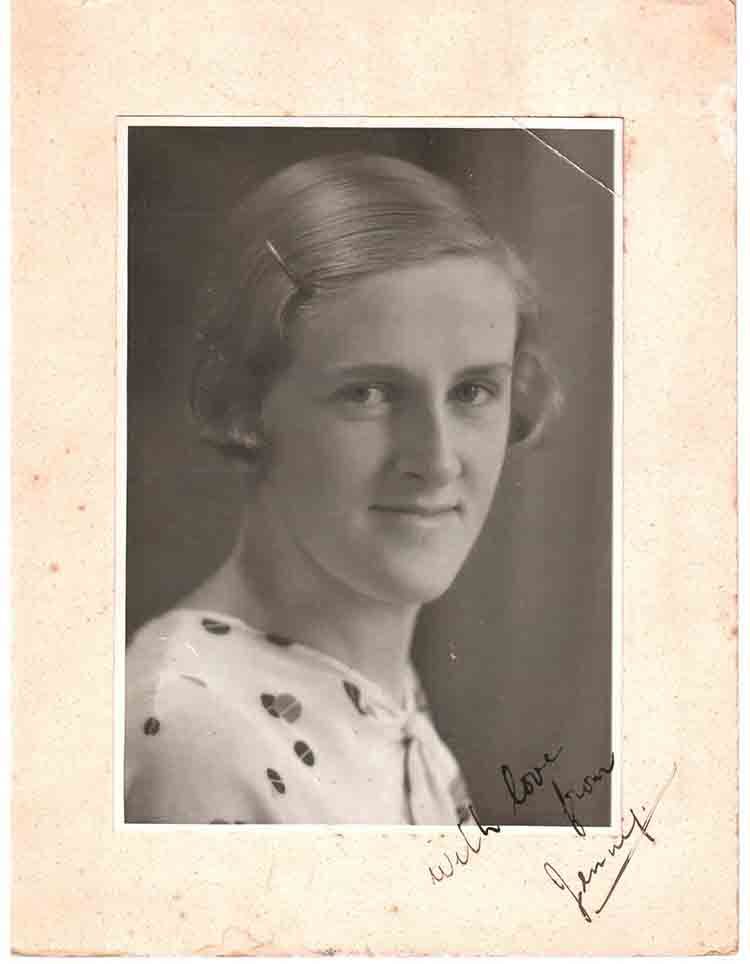
Jenny Maakal 001
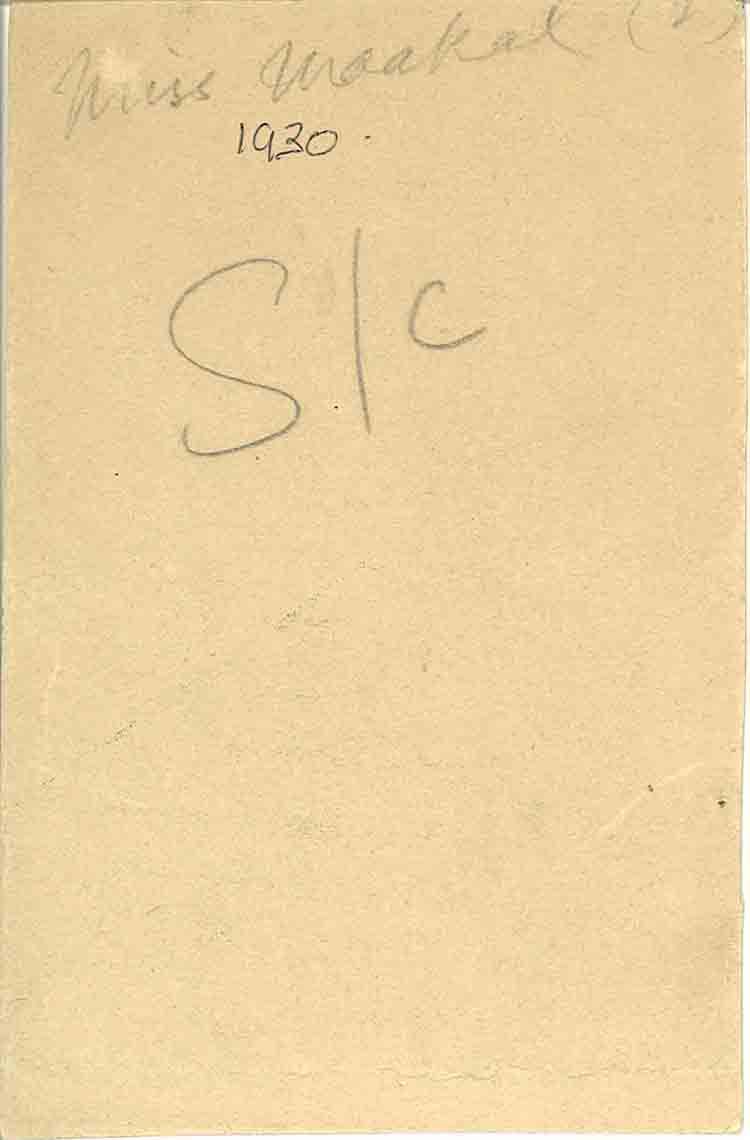
Jenny Maakal 1930 Back
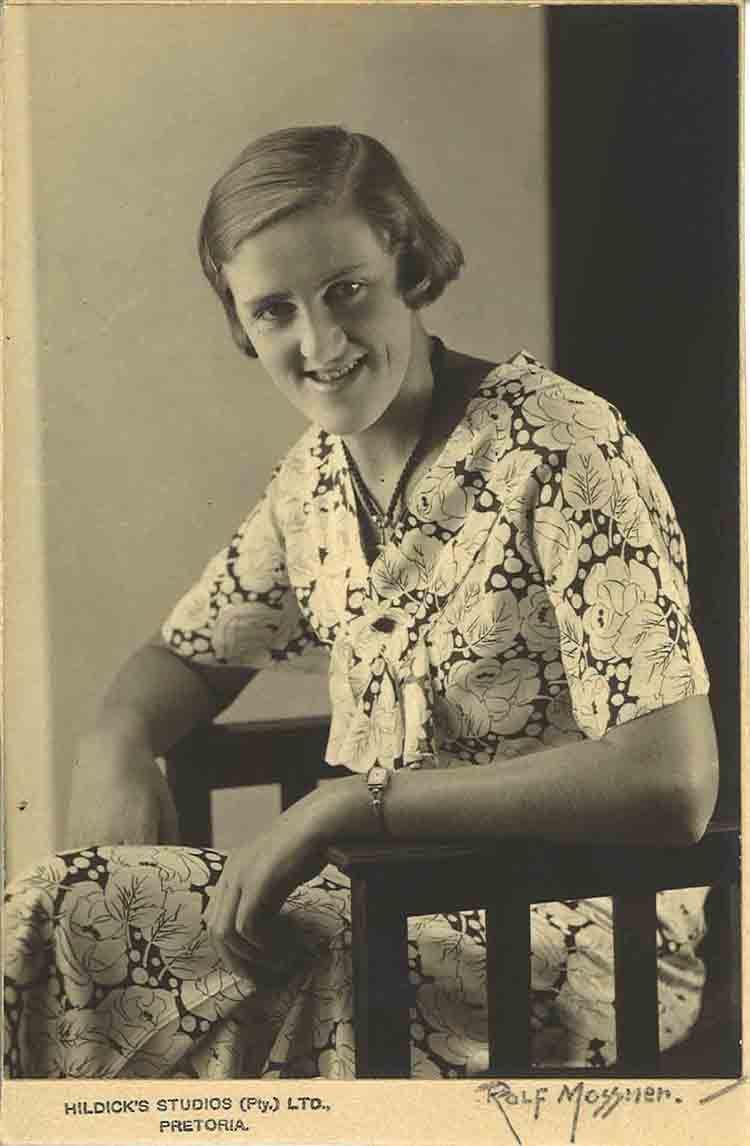
Jenny Maakal 1930
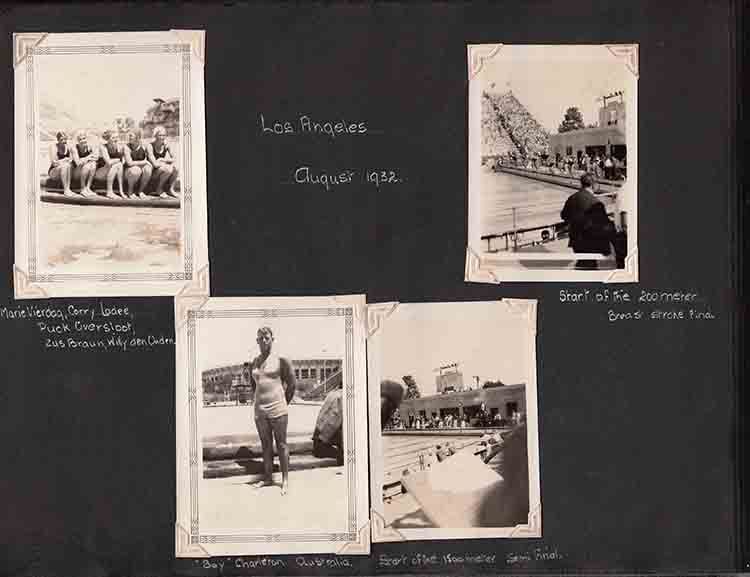
J IMG 0031

Maakal 400 Final 001

Maakal 400 Semifinal 001
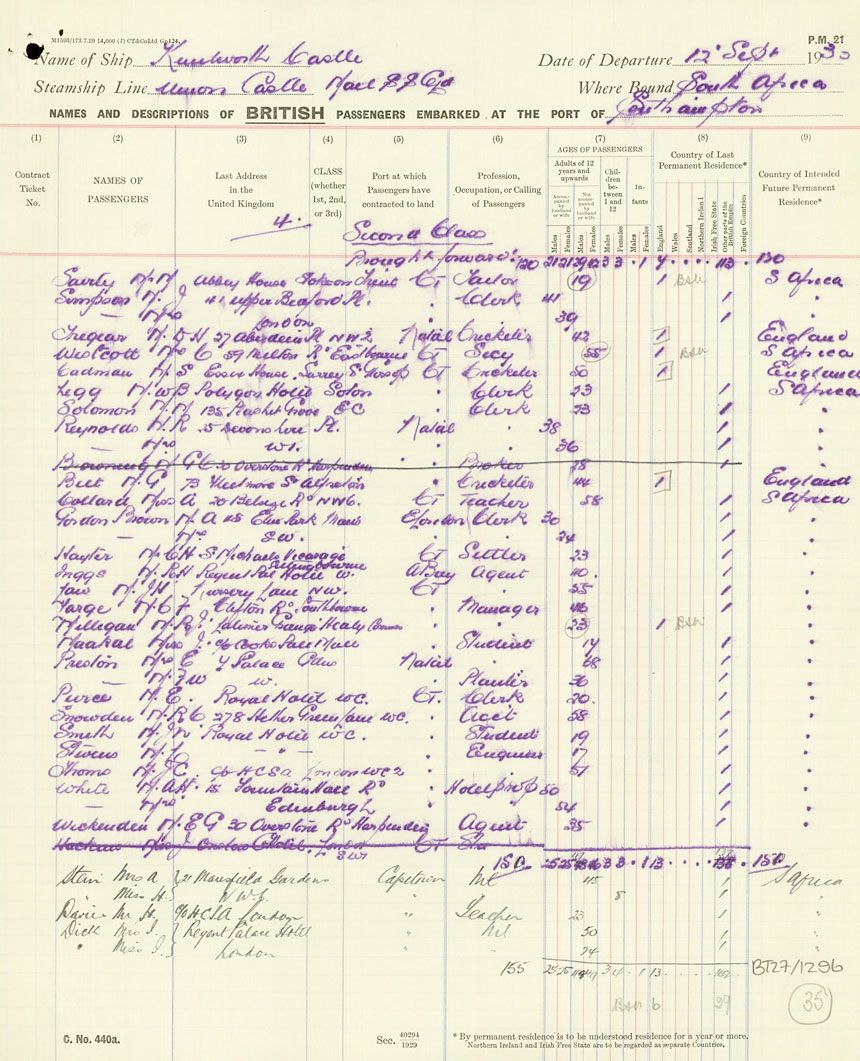
1930 Ship Log
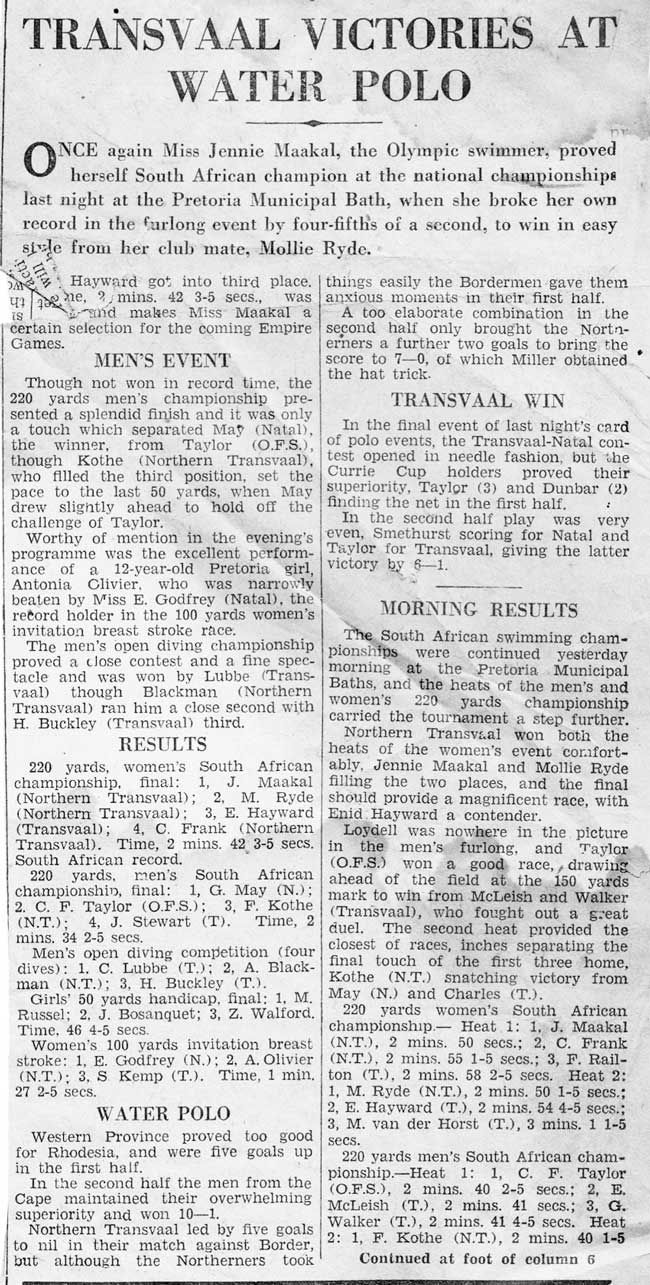
Pretoria Nationals Maakal Wins
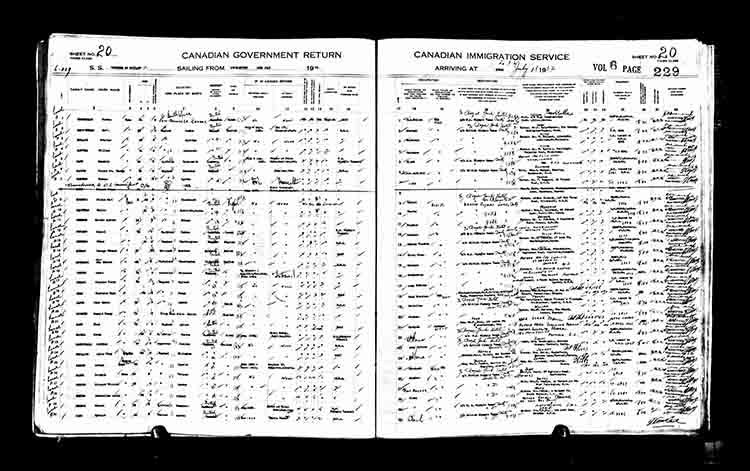
Travel To Canada For Training In Advance Of 1932 Olypics
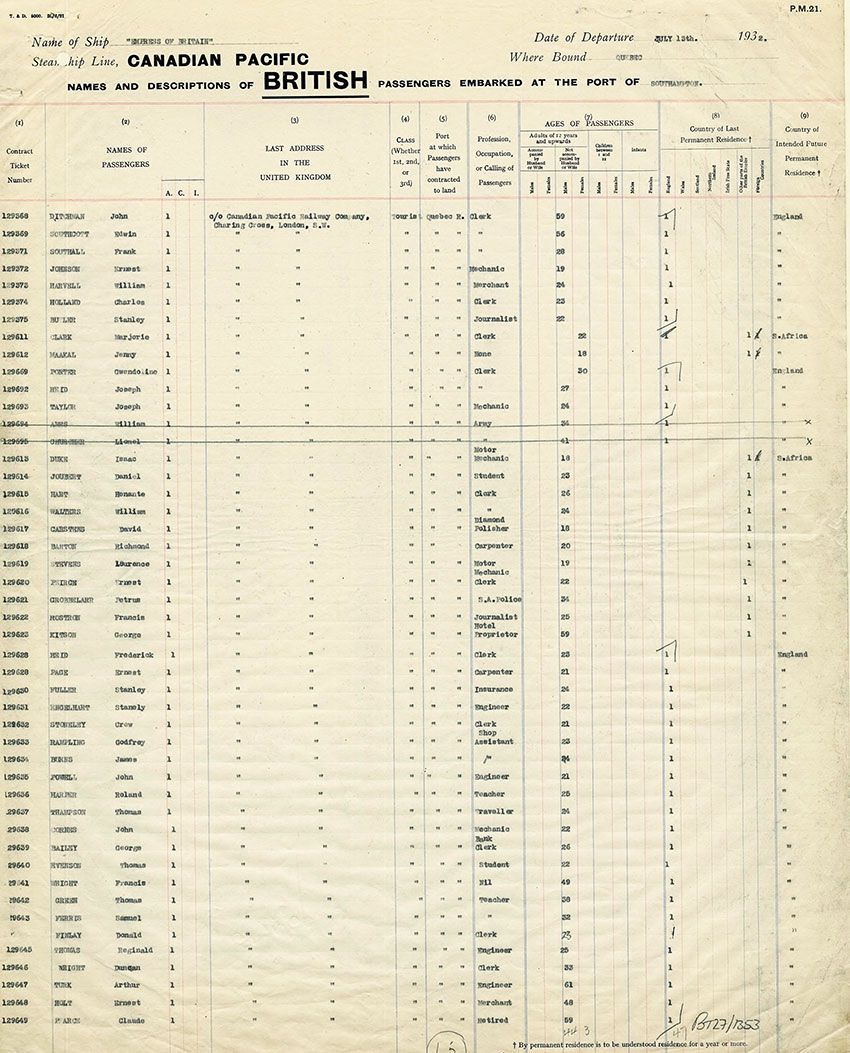
1932 Ship Log
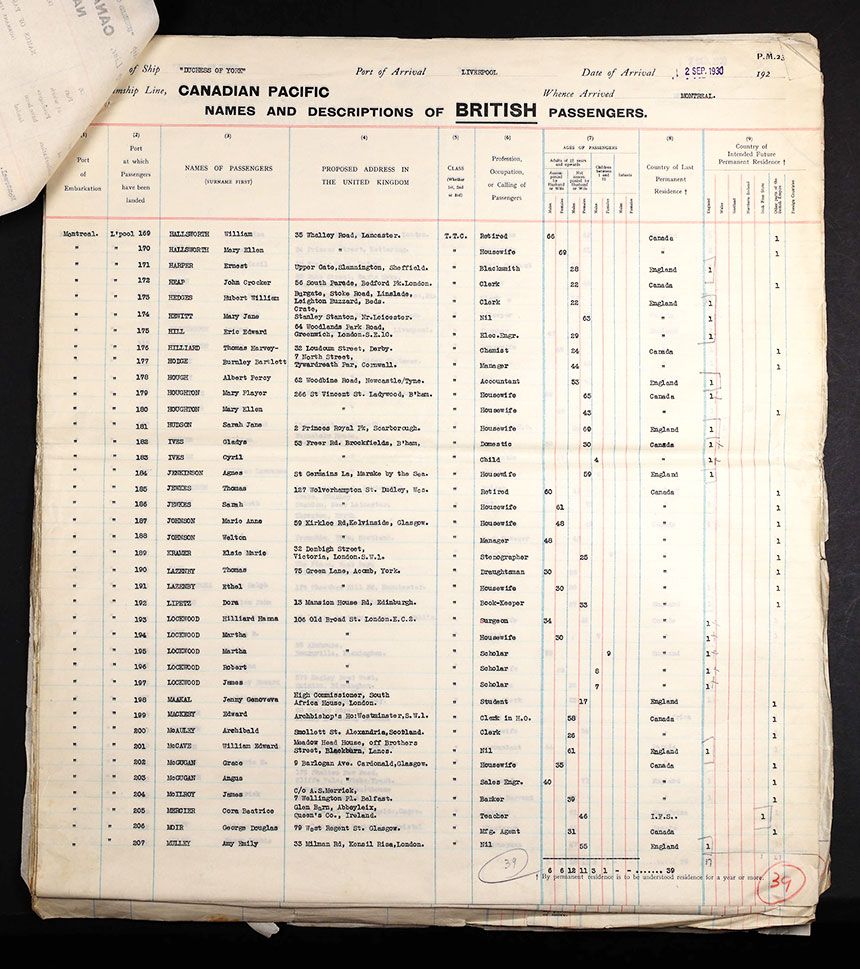
1932 Ship Log 2
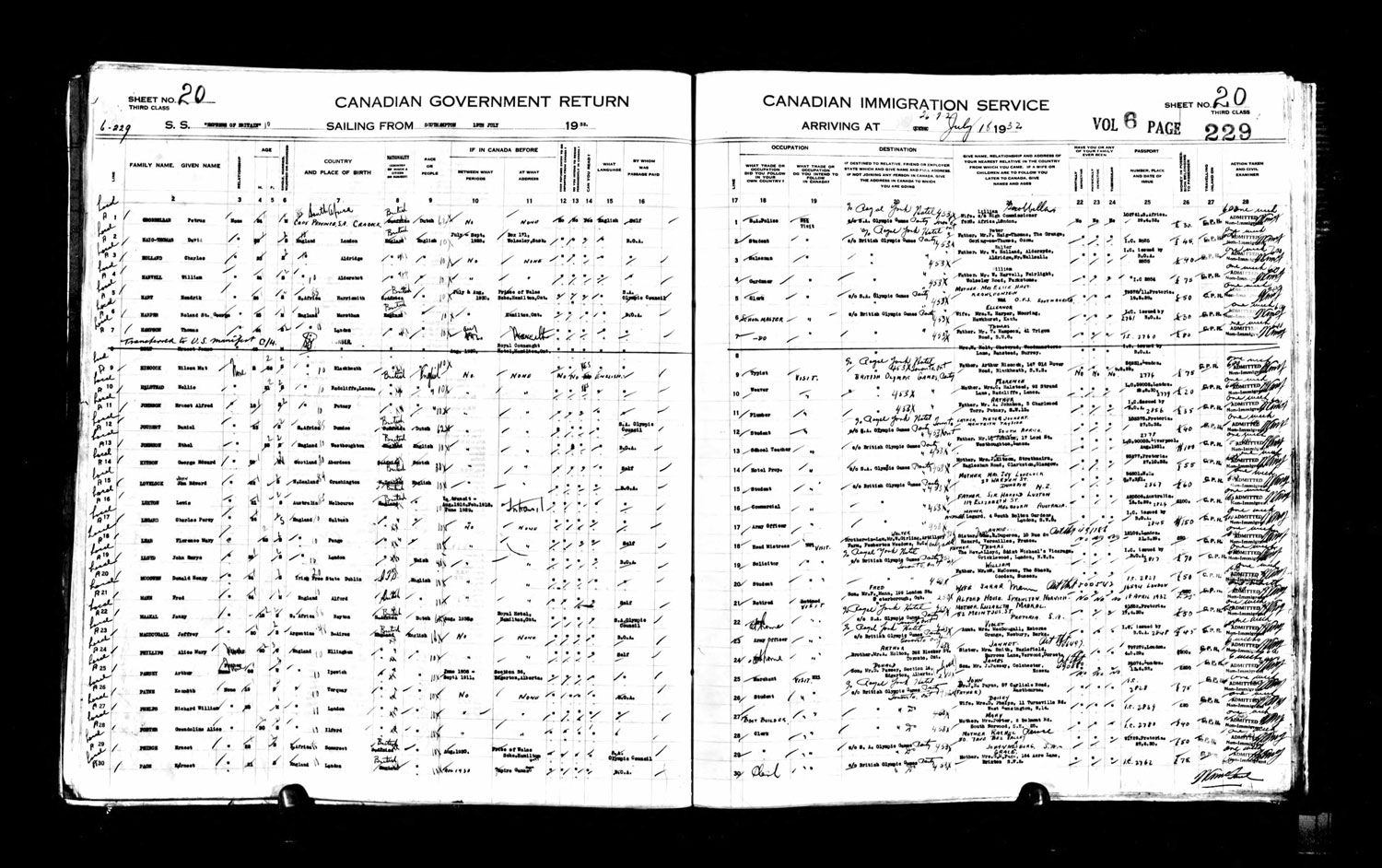
1932 Ship Log 1
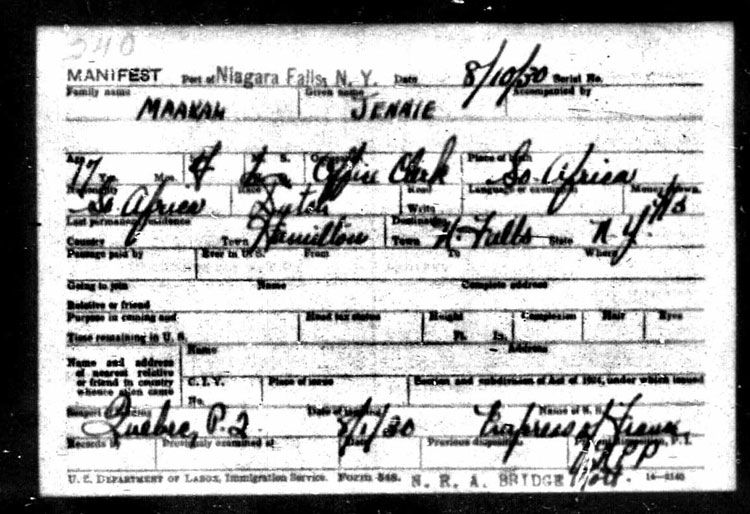
1932 USA Immigration Card
Jennie Maakal
deur Christo Maakal
Hier is iets wat ek ‘n paar jaar gelede oor Jennie Maakal geskryf het. Sy is 'n tannie van my (my pa se suster) en het behalwe suksesse by die destydse Rykspele, ook in 1932 te Los Angeles 'n bronsmedalje in die 400m vryslag behaal. Sy het ook in die finaal van die 100m vryslag geswem.
Ek dink dat sy ook die laaste Suid-Afrikaanse vrou was wat voor WOll aan 'n item in die Olimpiese Spele deelgeneem het. Die Suid-Afrikaanse Olimpiese Komitee het in 1936 besluit om geen vrouens in die span in te sluit nie!
Dis 'n tema wat ook sake vir Jennie Maakal bemoeilik het... Jennie se ouers (my oupa en ouma aan vaderskant) het vanaf Nederland na die ou Transvaal gekom, soos so baie ander Nederlanders in die tydperk voor en na die 2de Anglo-Boere-oorlog. 'n Nuwe land en 4 kinders het hul eie uitdagings gestel en net nadat my oupa 'n aanstelling by die Normaalkollege gekry het, het hy onverwags gesterf.
Boonop het die Depressie aangebreek. My weduwee-ouma het 'n onderwyspos by die Oost-Eind Skool in Pretoria gehad, maar vrouens is maar swak betaal. Om te oorleef en die kinders van die nodige te voorsien, het sy ook smiddae en saans taalonderrig aan die kinders van ambassade-personeel verskaf, waarskynlik in Frans, Nederlands en Duits.
In die 20's en dertiger jare was swem 'n gunsteling tydverdryf onder jong mense in Pretoria, met meisies soos Zus Engelenberg, Freddie van der Goes, Kathleen Russel, Mary Bedford en Rhoda Rennie wat uitgeblink het. Die laaste 4 van hulle het in 1928 se Olimpiese Spele 'n bronsmedalje in die 4x100m vryslag aflos losgeswem. Daar was in alle geval by baie mense die gevoel dat vrouens nie by die moderne Olimpiese Spele moet deelneem nie. In 1932 was Jennie Maakal deur die Swemvereniging genomineer om aan die spele deel te neem - dink sy was hulle enigste nominasie - maar die S A Olimpiese Komitee wou nie vir haar betaal nie. As sy wou gaan, moes sy self betaal.
My ouma moes 'n groot verband op hulle huis neem om die nodige fondse hiervoor te kry, wel wetend dat sy eintlik nie genoeg verdien om die terugbetalings te behartig nie. Soos reeds gesê het Jennie toe in twee finales geswem en in een daarvan derde gekom.
Terug in Suid-Afrika het twee ander boksers, Dave Carstens en Laurie Stevens wat beide goue medaljes verwerf het, hulle toetrede tot die professionele bokskryt uitgestel en eers in die Johannesburgse stadsaal 'n vertoning aangebied waarvan die toegangsgeld gebruik is om die verband op die Maakals se huis terug te betaal. Dit het lank voor my geboorte gebeur, maar ek raak nou nog emosioneel oor hierdie goedhartige daad van ware kameraadskap.
________________________________________________________________________________________________________
Here is something I wrote about Jennie Maakal a few years ago. She is an aunt of mine (my father's sister) and besides successes at the then Reich Games, she also won a bronze medal in the 400m freestyle in Los Angeles in 1932. She also swam in the final of the 100m freestyle. I think that she was also the last South African woman to participate in an event in the Olympics before WWll. The South African Olympic Committee decided in 1936 not to include any women in the team! It's a theme that also complicated matters for Jennie Maakal... Jennie's parents (my paternal grandfather and grandmother) came from the Netherlands to the old Transvaal, like so many other Dutch people in the period before and after the 2nd Anglo-Boer War. A new country and 4 children presented their own challenges and just after my grandfather got an appointment at the Normal Teachers Training College, he died unexpectedly. In addition, the Depression had arrived. My widowed grandmother had a teaching position at the East End School in Pretoria, but women were poorly paid. In order to survive and provide the children with what they needed, she also provided language lessons to the children of embassy staff in the afternoons and evenings, probably in French, Dutch and German. In the 1920s and 30s, swimming was a favorite pastime among young people in Pretoria, with girls like Zus Engelenberg, Freddie van der Goes, Kathleen Russel, Mary Bedford and Rhoda Rennie excelling. The last 4 of them swam a bronze medal in the 4x100m freestyle relay at the 1928 Olympic Games. In any case, there was a feeling among many people that women should not participate in the modern Olympic Games. In 1932, Jennie Maakal was nominated by the SA Amateur Swimming Union to compete in the Games - thought she was their only nomination - but the S A Olympic Committee would not pay for her. If she wanted to go, she had to pay herself. My grandmother had to take out a large mortgage on their house to get the necessary funds for this, knowing that she does not actually earn enough to handle the repayments. As already said, Jennie then swam in two finals and came third in one of them. Back in South Africa, two other Olympic boxers, Dave Carstens and Laurie Stevens, who both won gold medals, postponed their entry into the professional boxing arena and first presented a show in the Johannesburg City Hall, the entry fee of which was used to pay the mortgage on the Maakals pay back their house. This happened long before I was born, but I still get emotional about this kind act of true camaraderie.